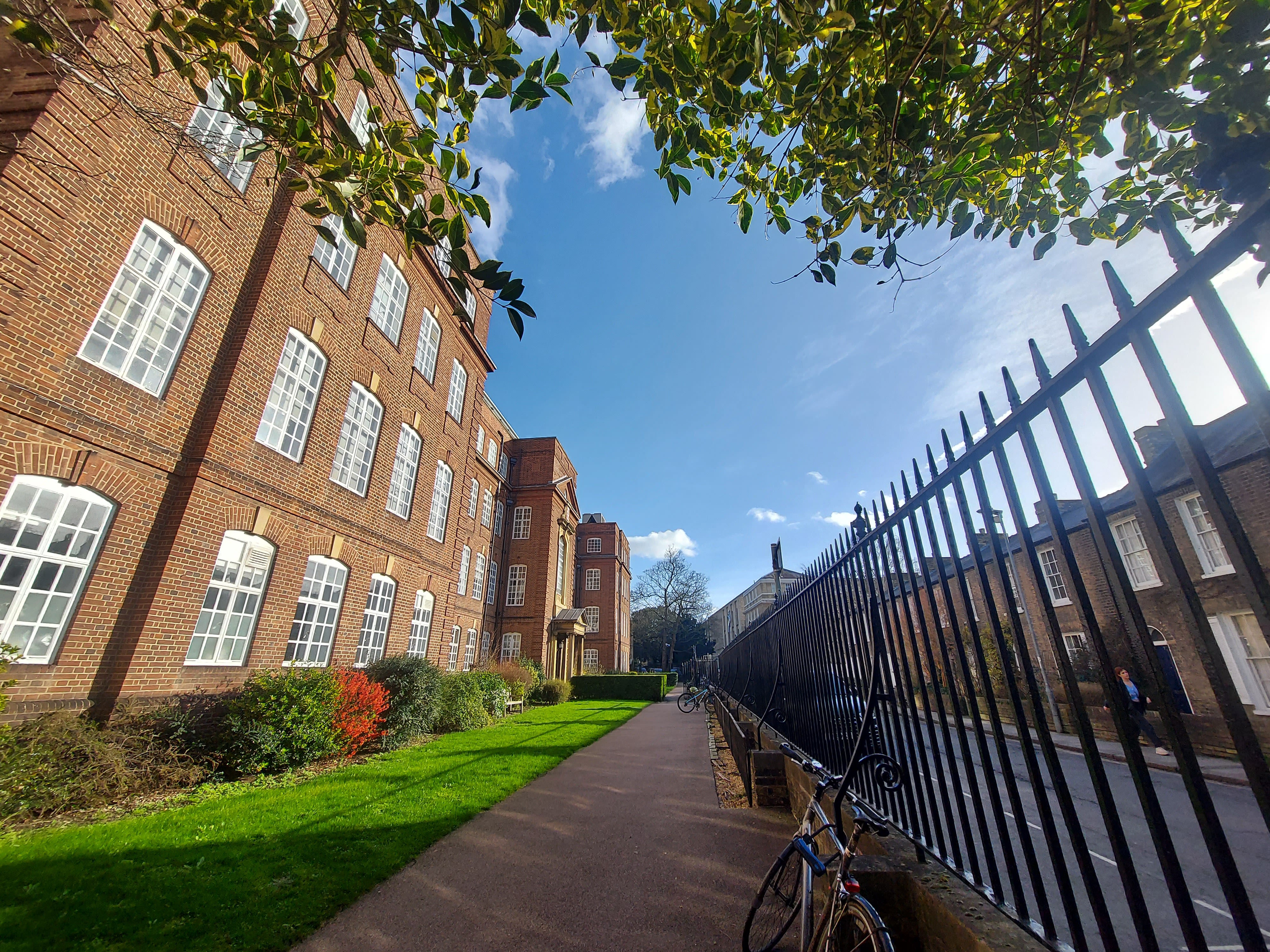International Women's Day
Women of Pathology
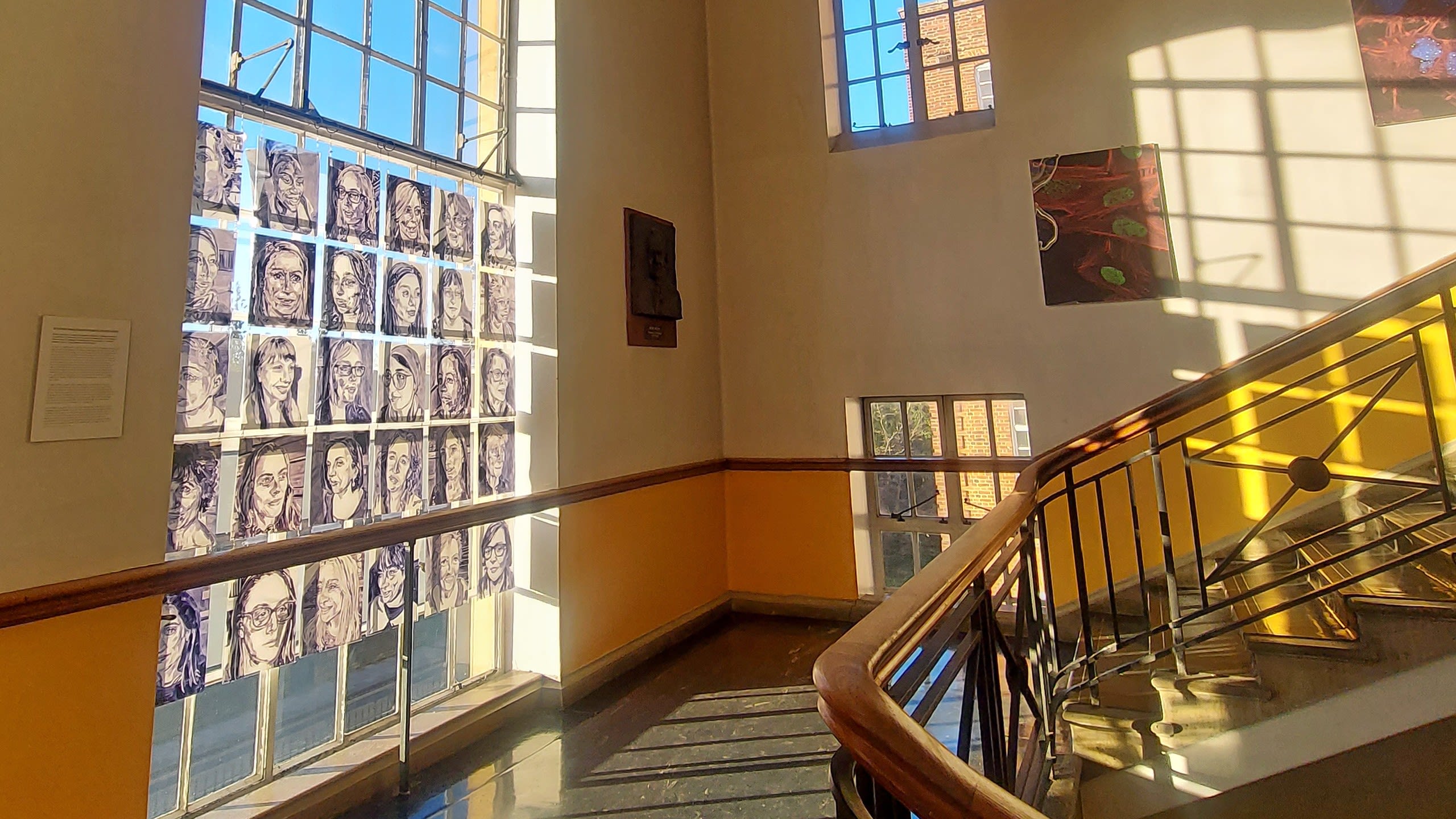
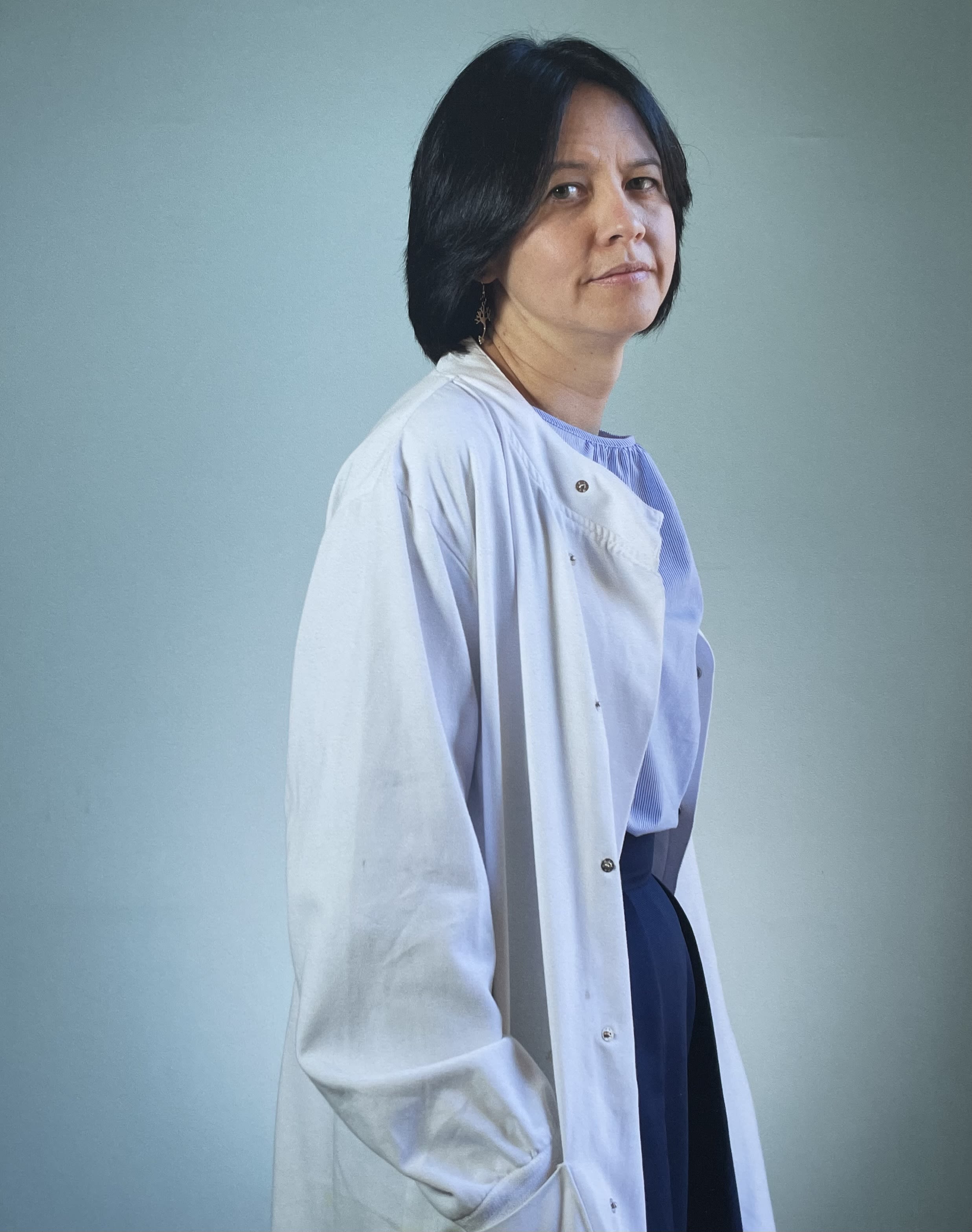
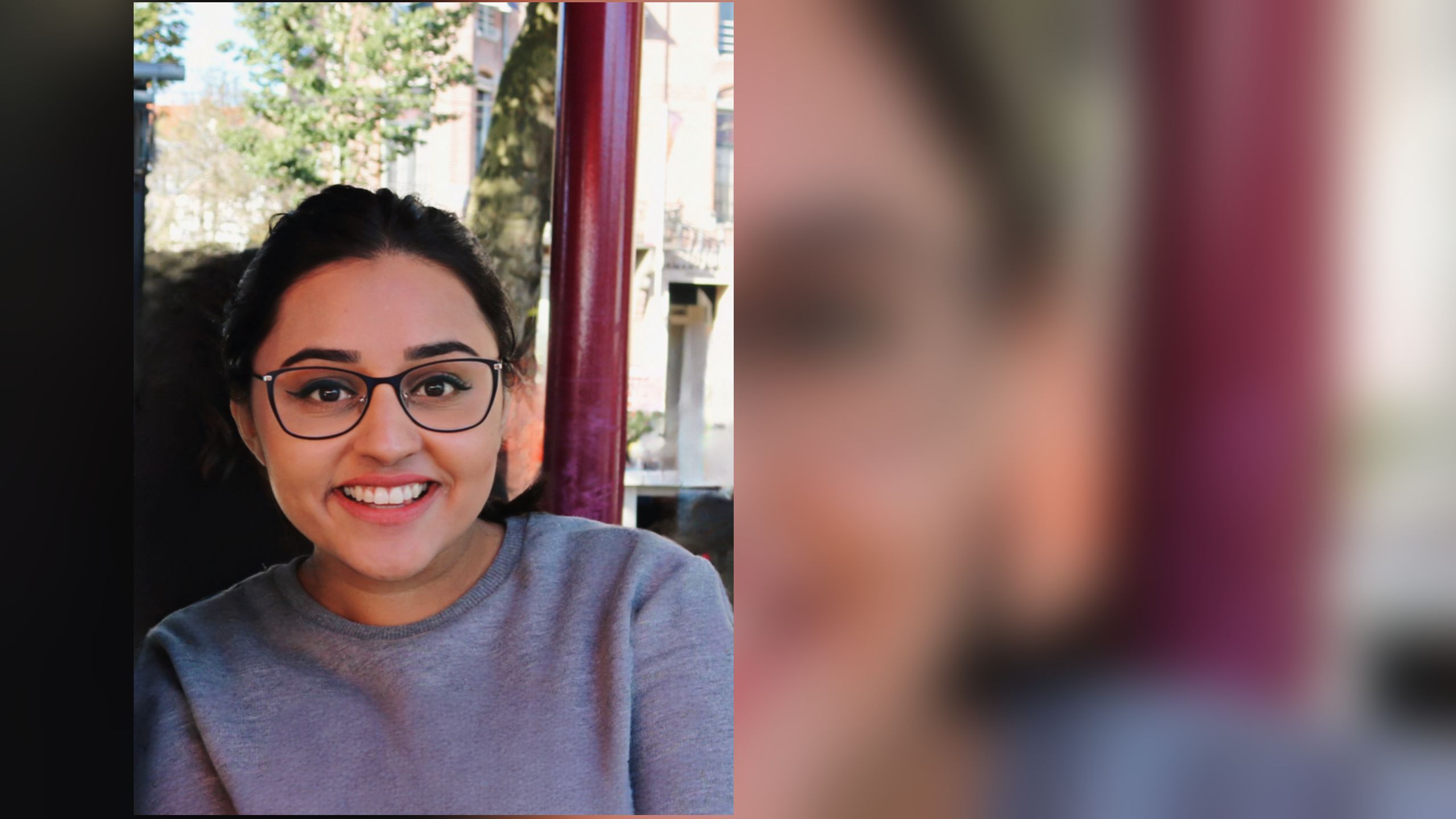
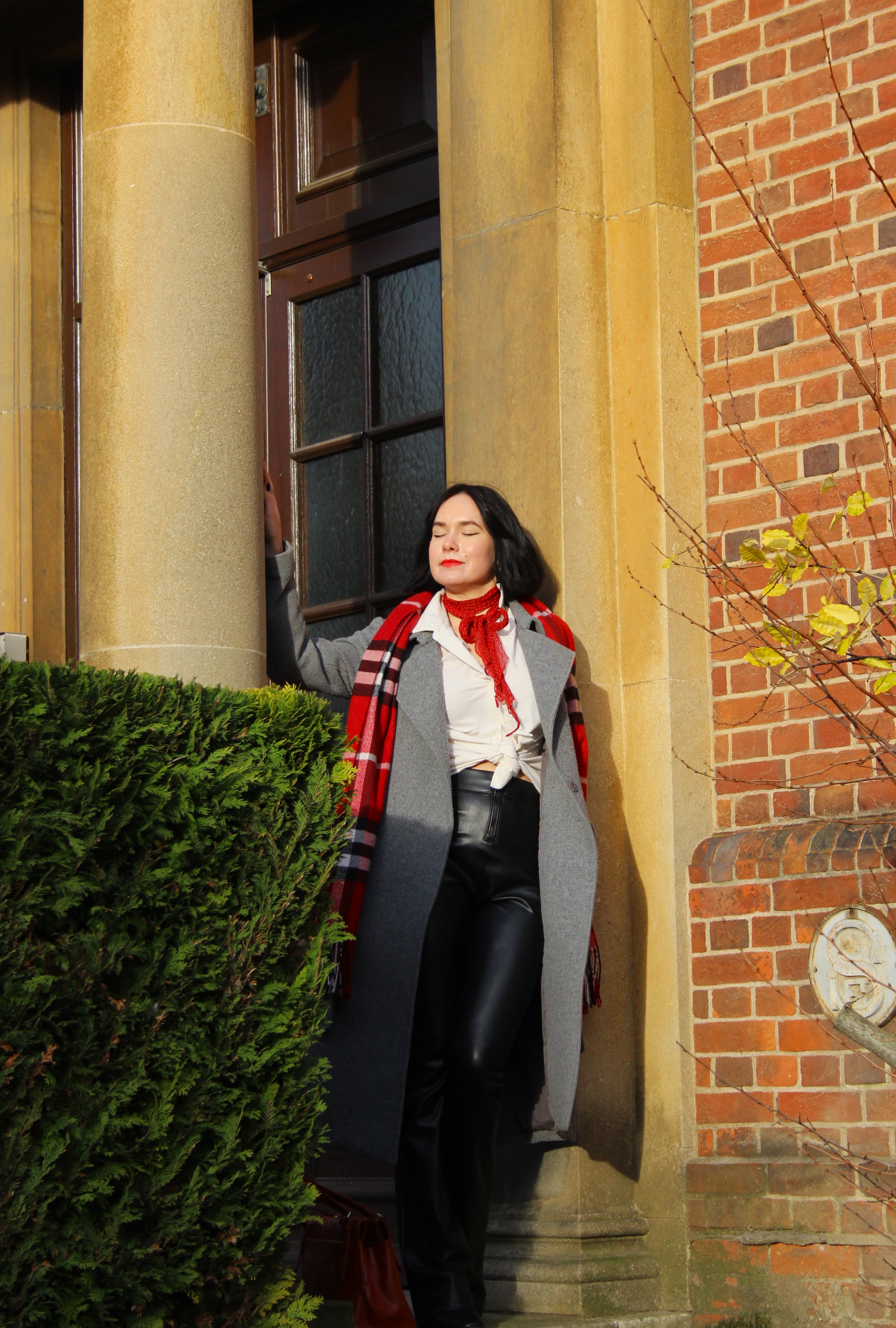
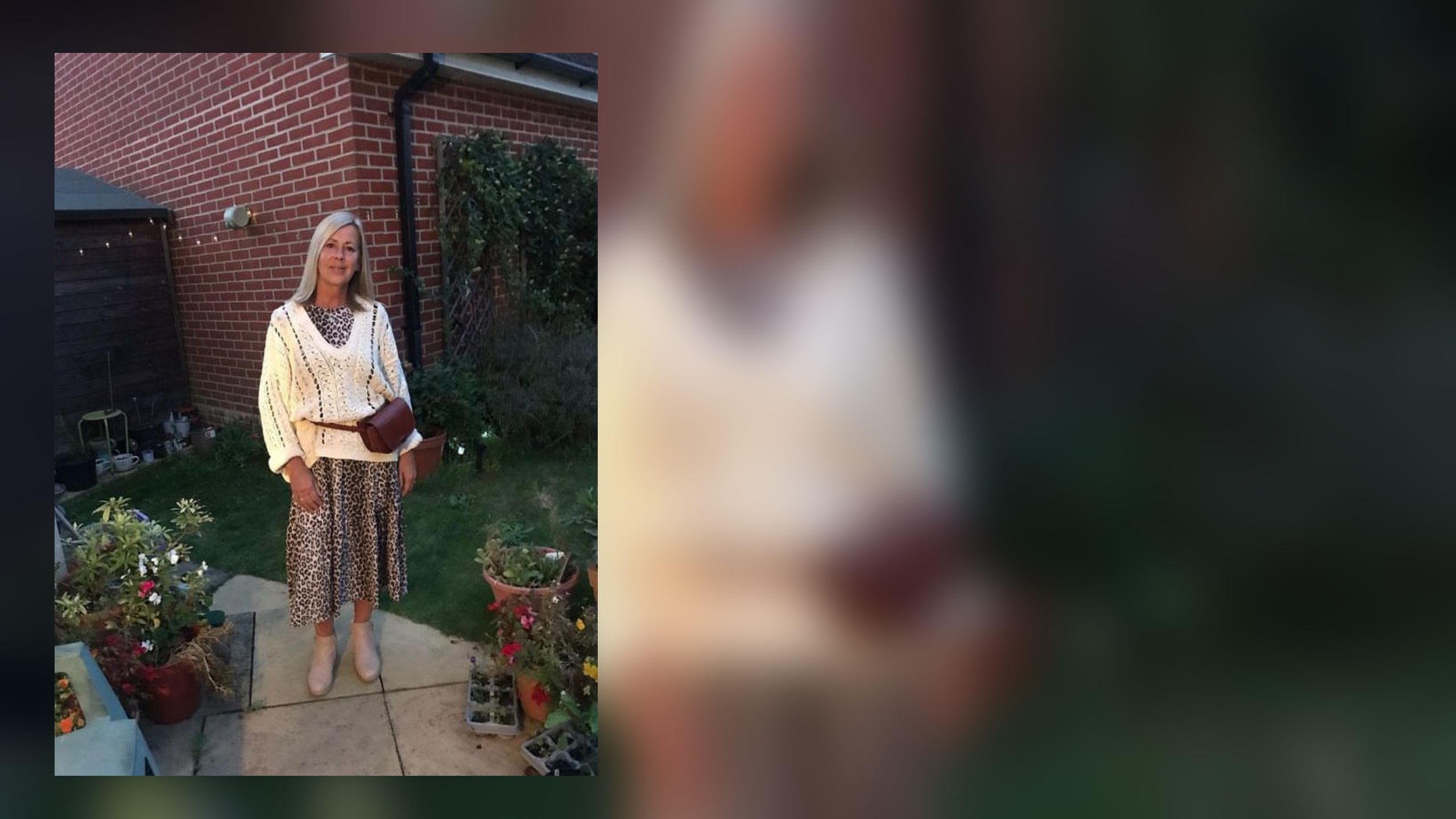
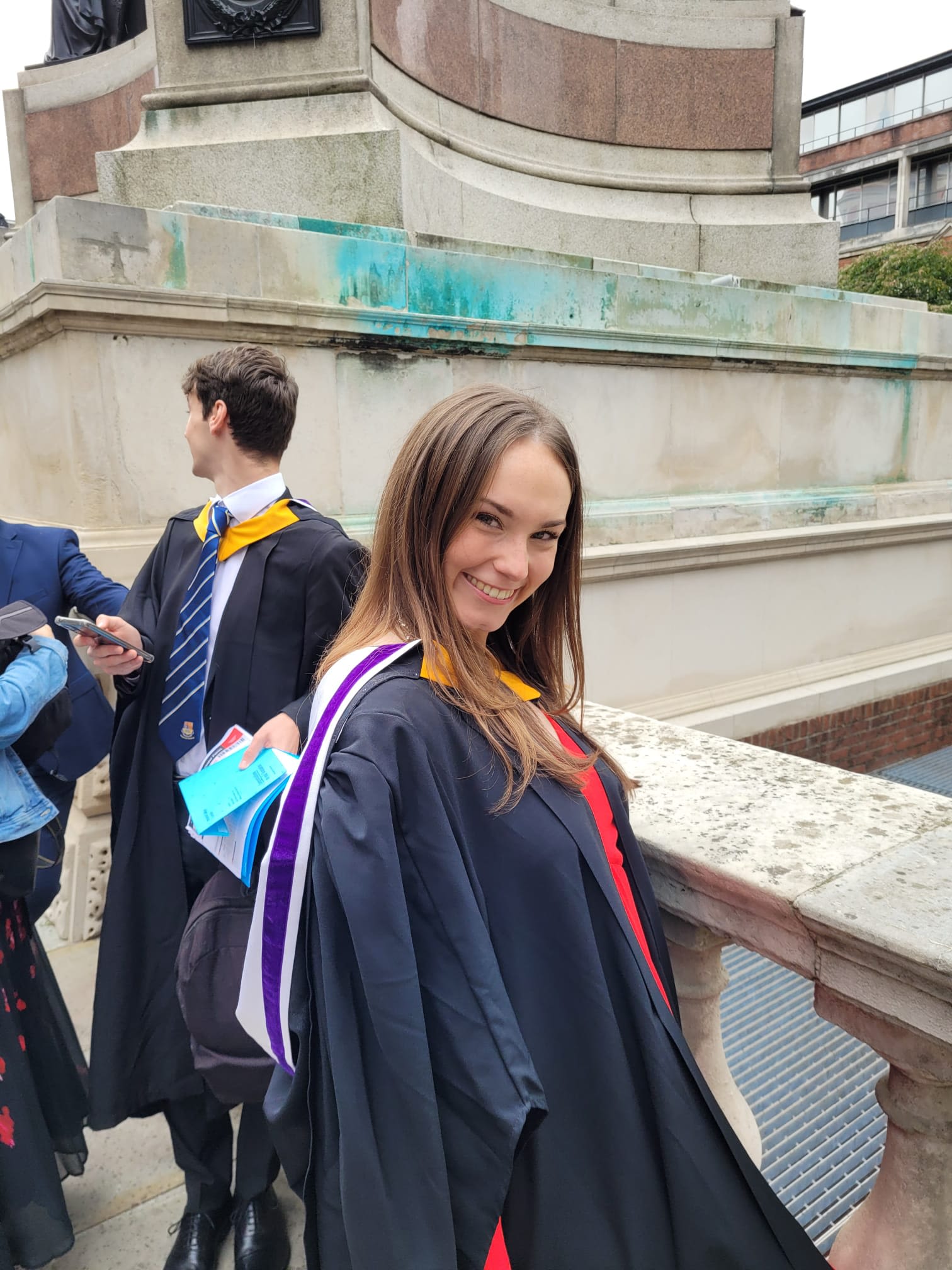
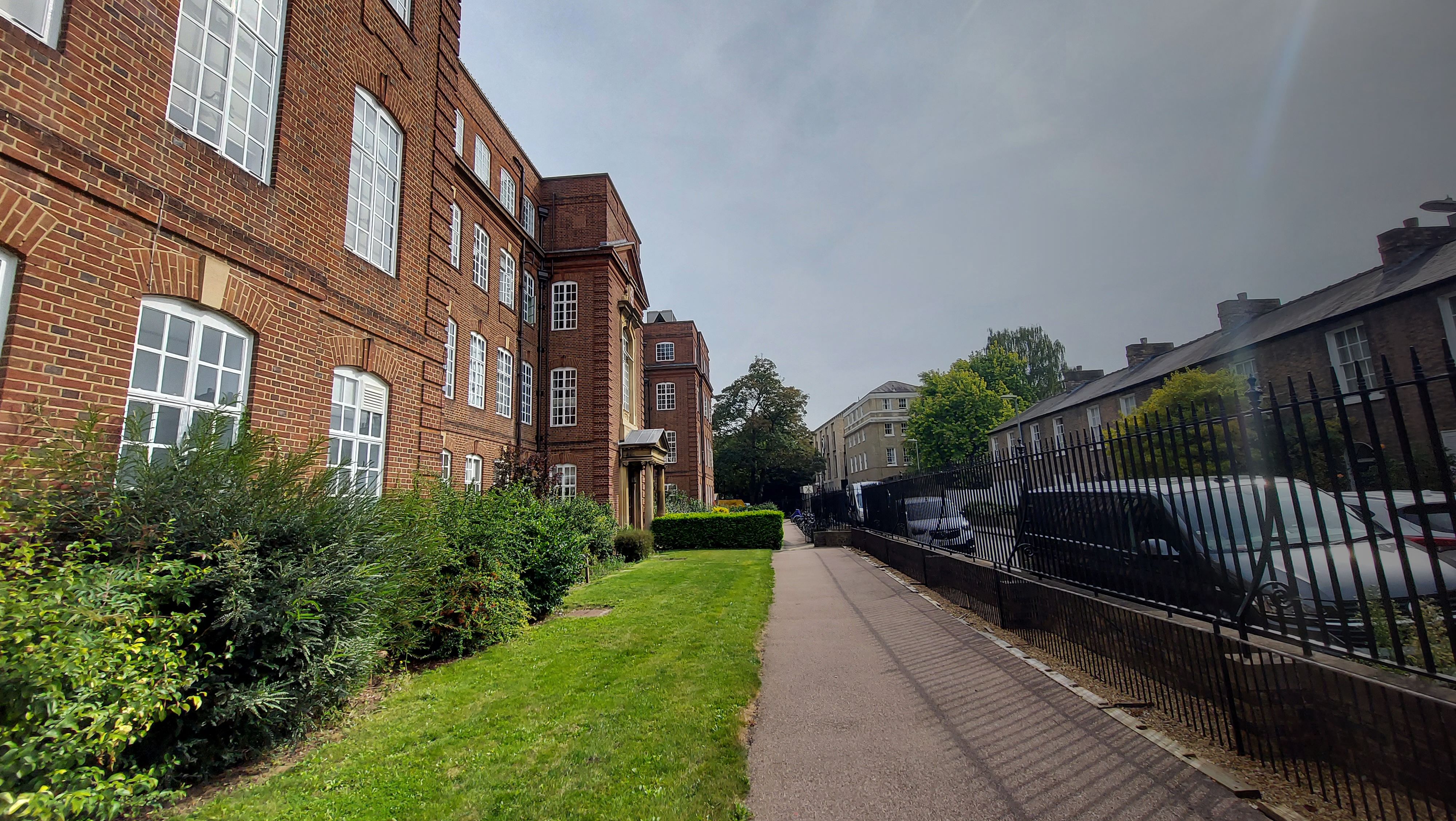
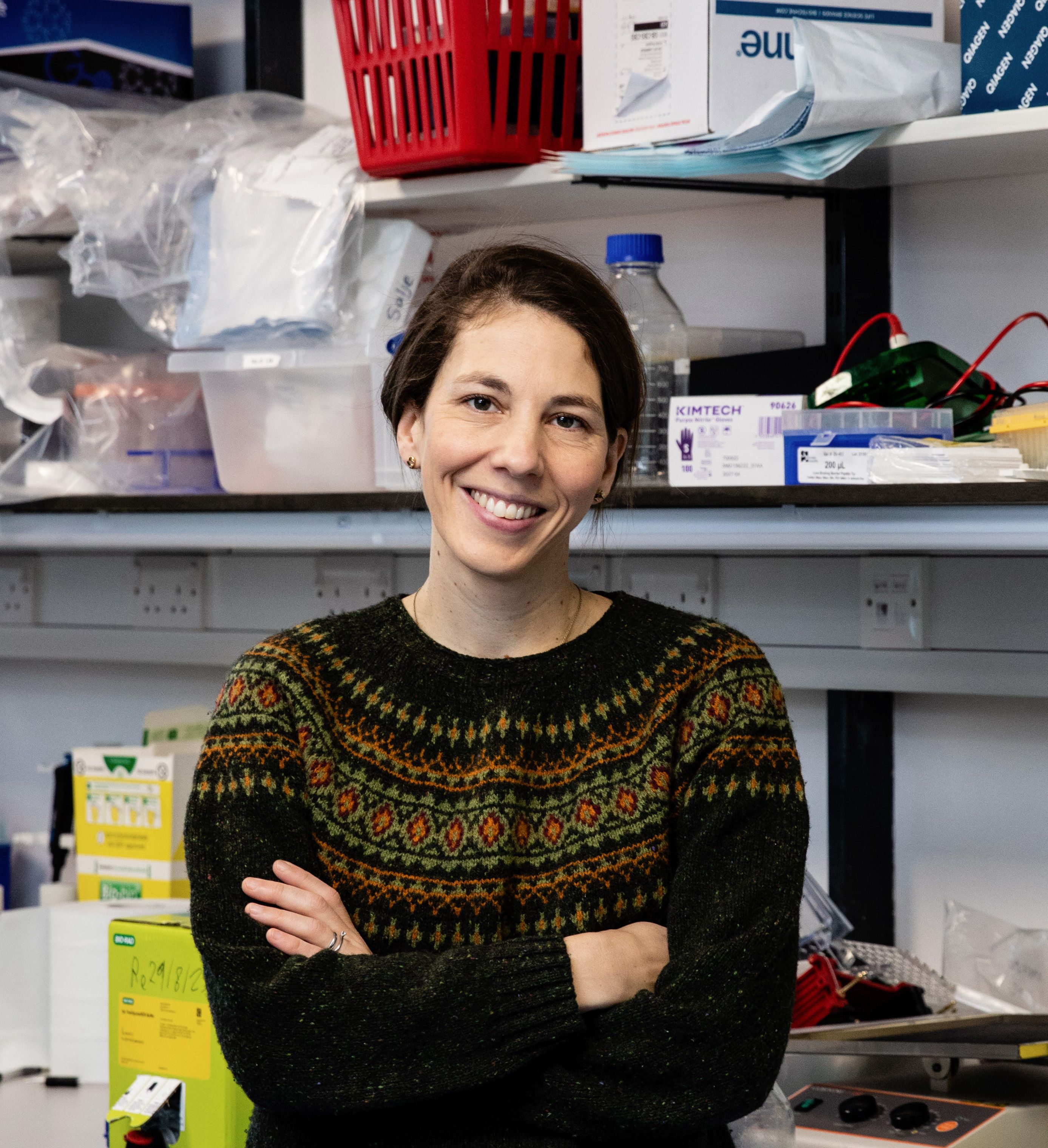
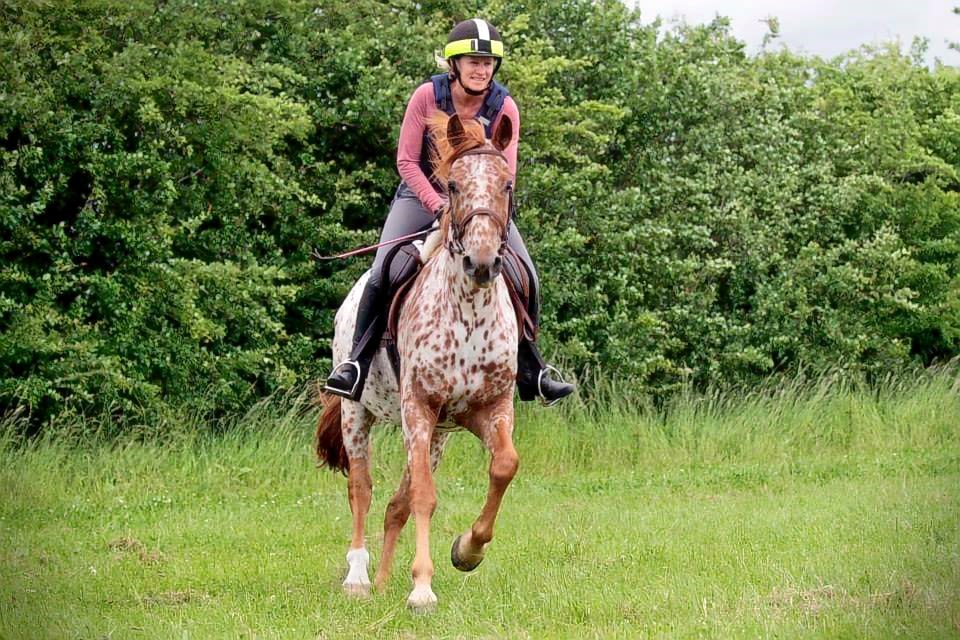
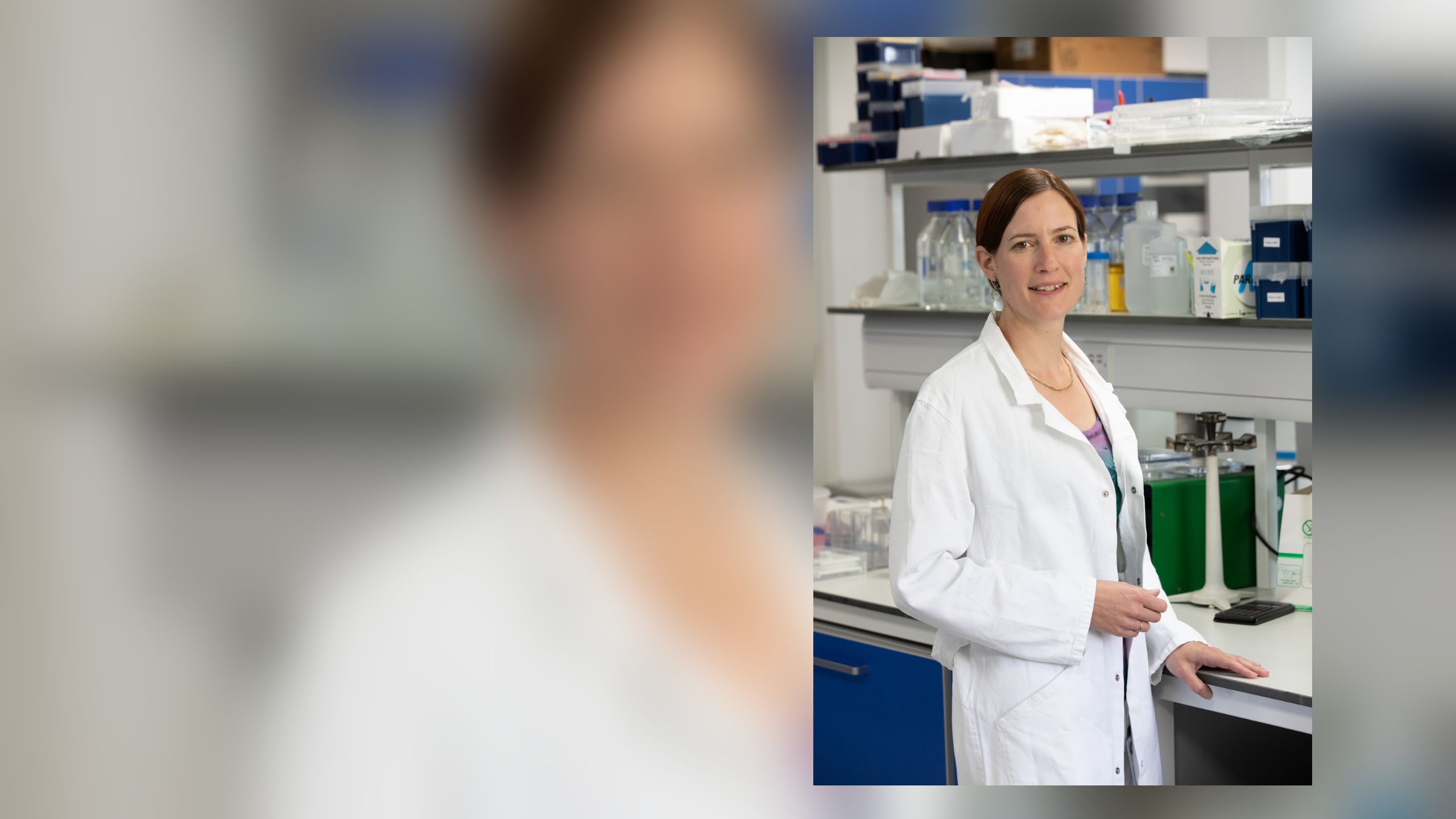
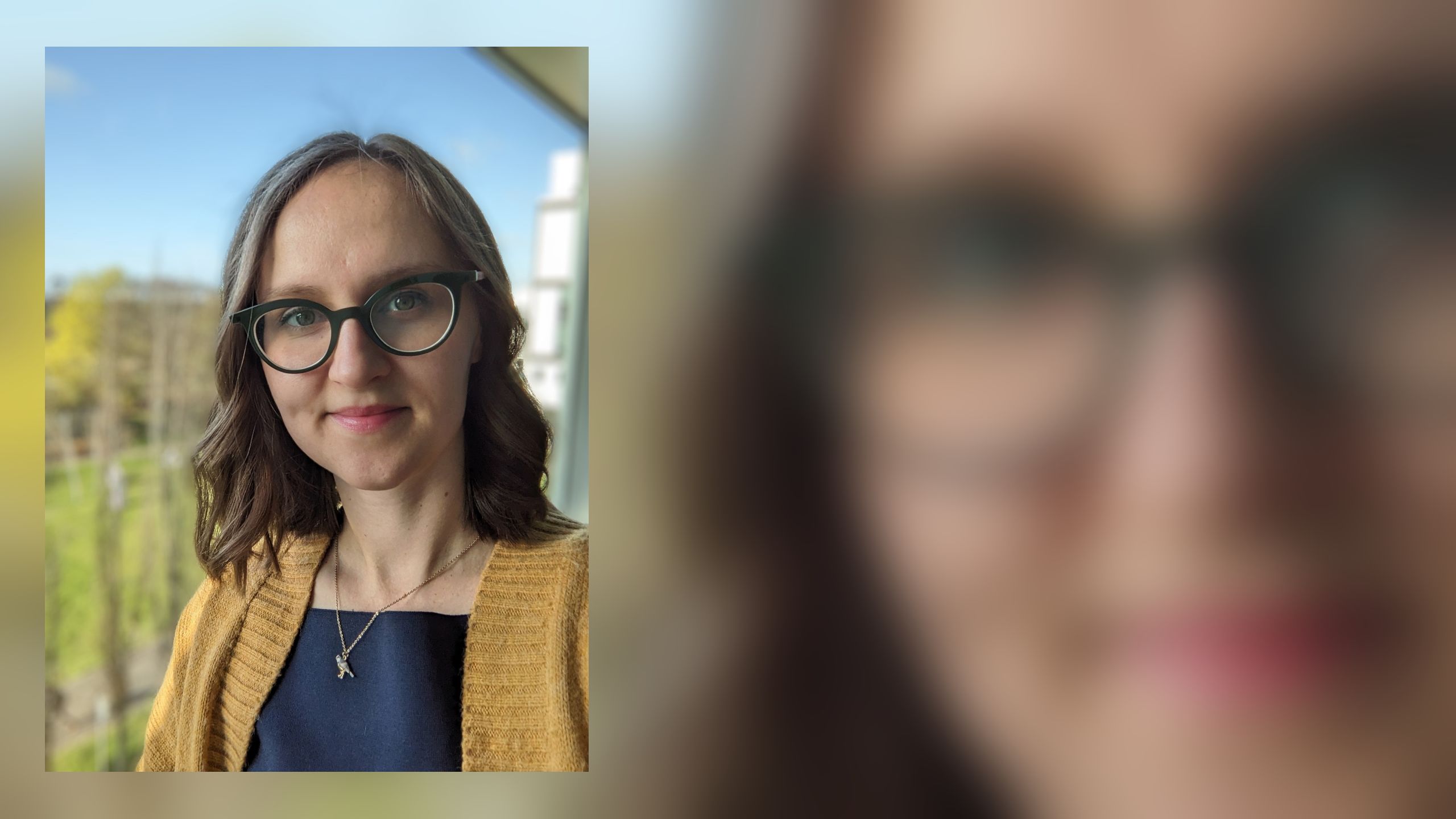
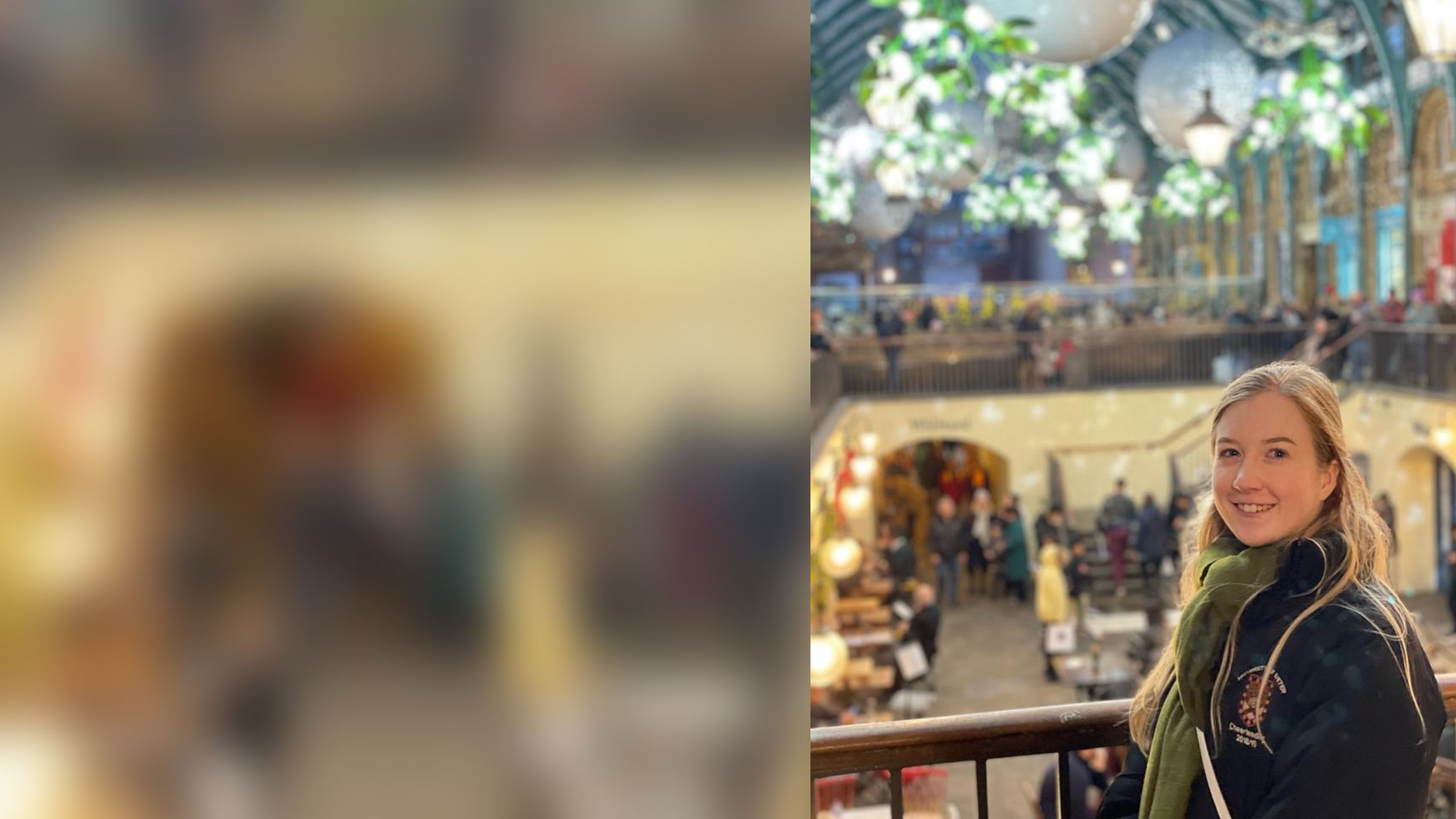

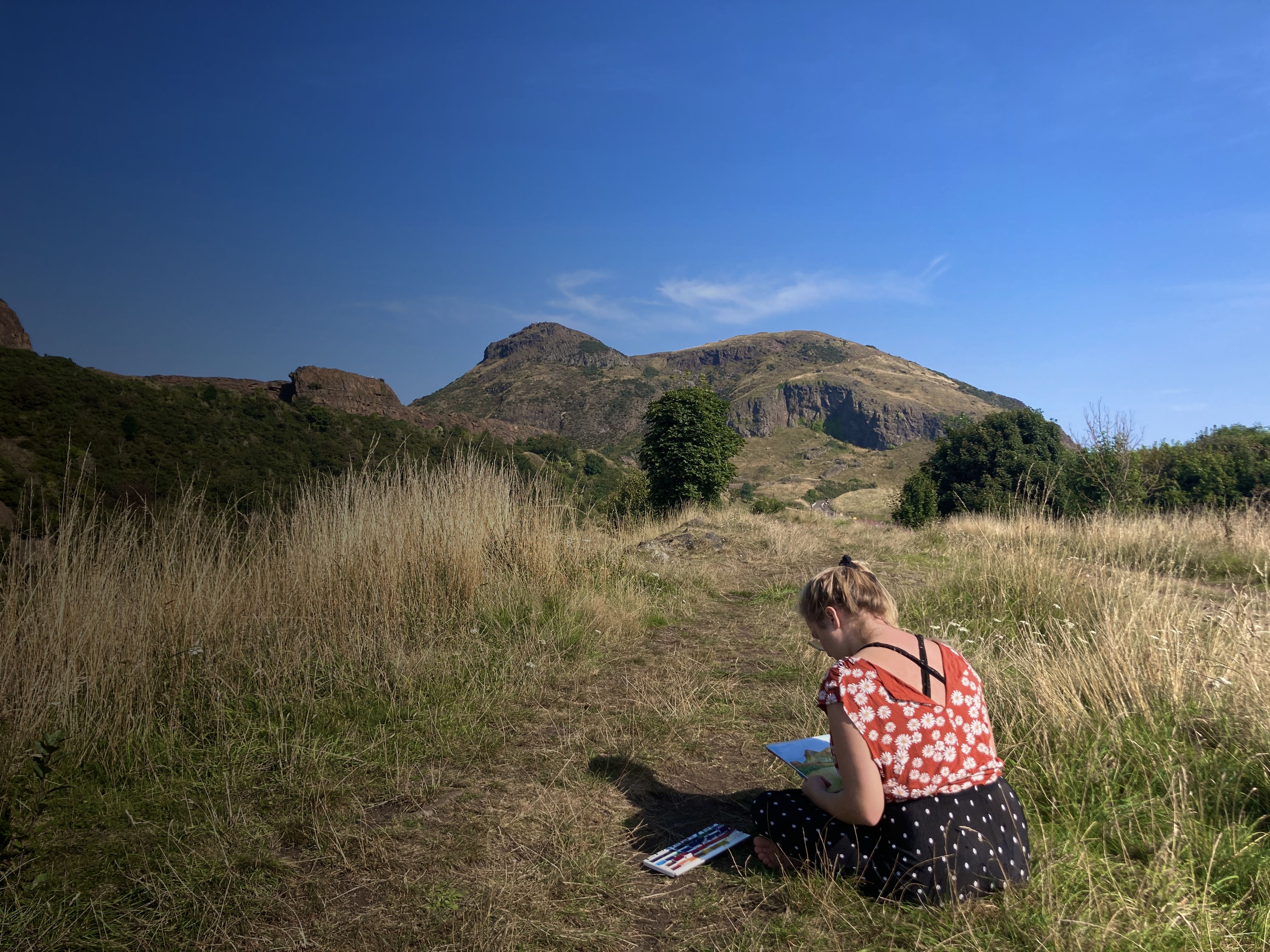
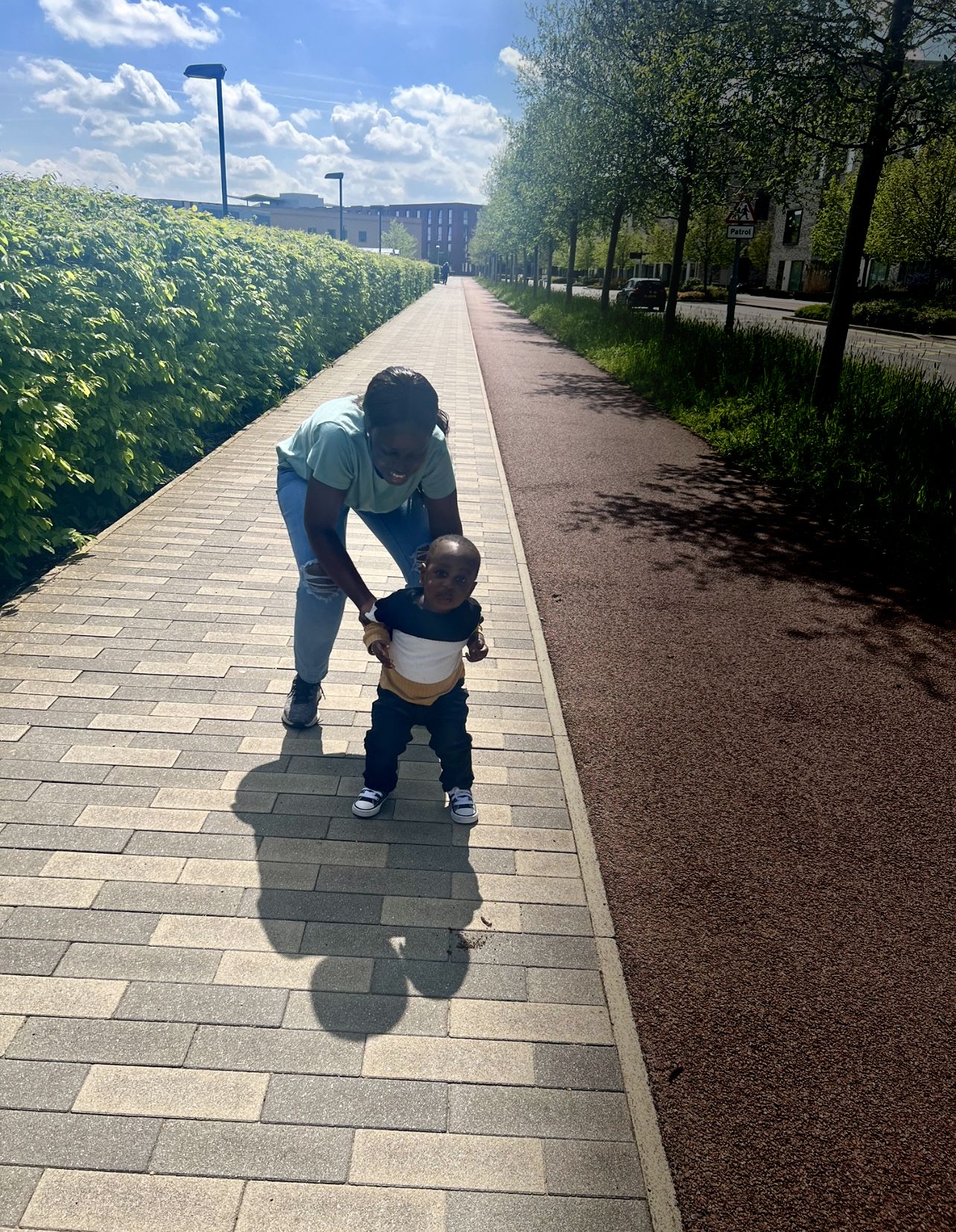
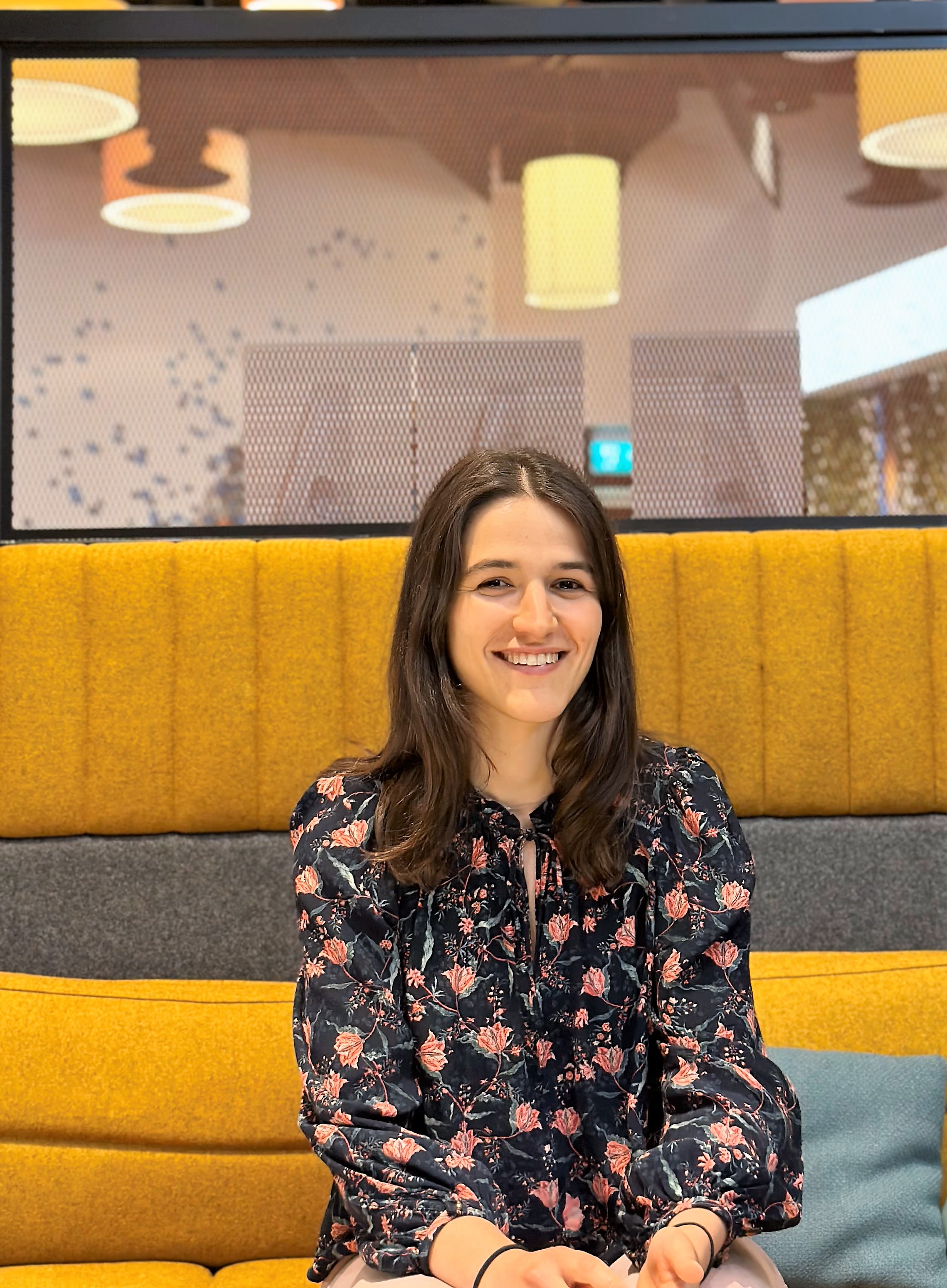
Heike Laman
Head of Department
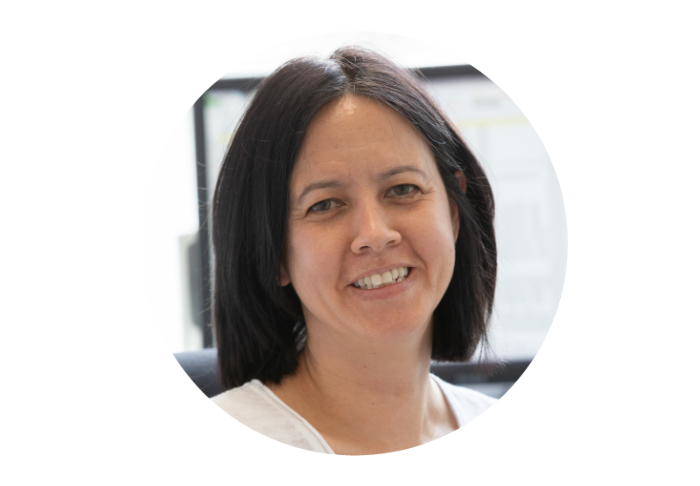
In line with the International Women's Day 2024 theme of "Invest in women: Accelerate progress," Professor Heike Laman's career embodies the transformative impact of investing in women's potential within the scientific community.
Heike is the first female Head of the Department of Pathology at the University of Cambridge. The Department was established in 1883, so it has taken 140 years to reach this milestone. Professor Laman's road to leading the Department started in Jamaica, where she was born and raised, to her secondary and BSc studies in Miami, Florida. She was awarded her Master's and PhD from Columbia University in New York and did post-doctoral training in London at the former Imperial Cancer Research Fund and UCL.
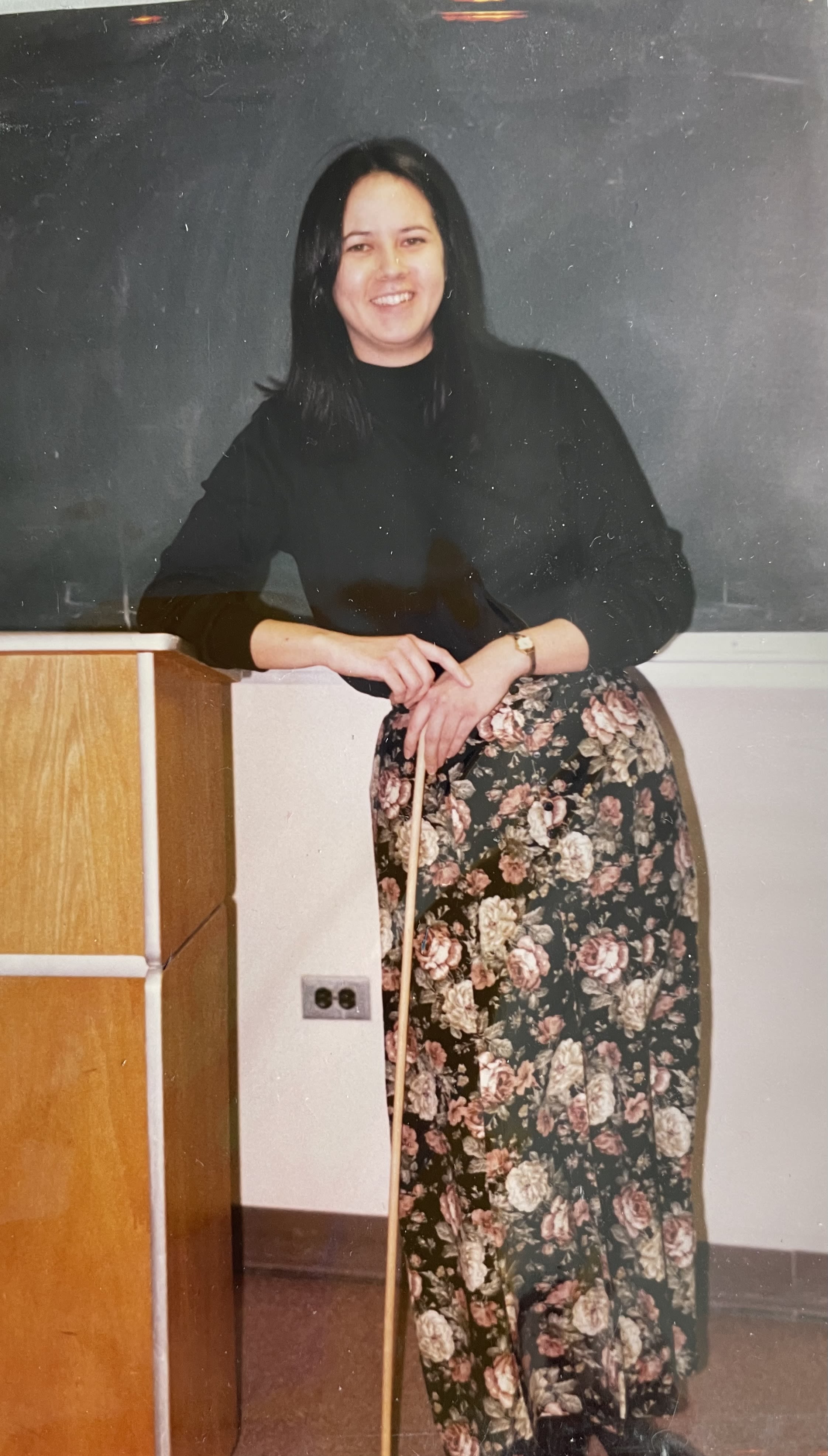
Her laboratory at Cambridge researches enzymes known as ubiquitin ligases, which are involved in diseases like Parkinson's disease, cancer, and male infertility, and harnessing their power to design a new modality of treatment known as PROTACs. During her career, she has also championed gender equality and improved the working culture around conducting scientific research in her department. Her journey illustrates the importance of supporting women's education and professional development. Professor Laman's achievements underscore the value of investing in women to accelerate scientific progress and build a more inclusive society.
Tasmia Mirza
PhD Student
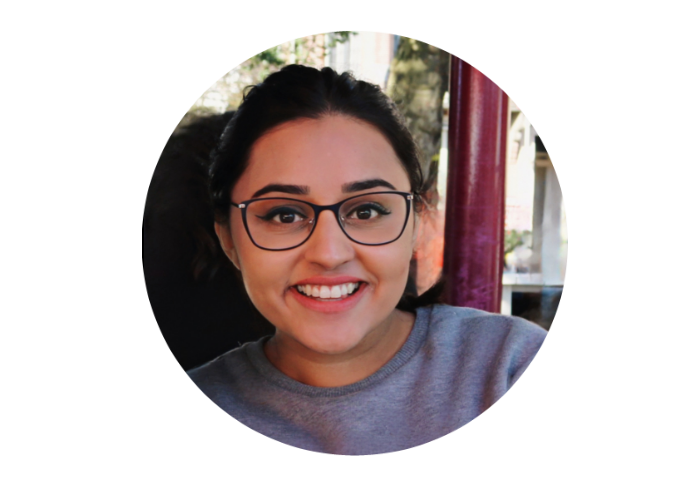
I'm Tasmia, a final-year SBS-DTP student at the Department of Pathology and King’s College.
Originally from the Netherlands, I've been an international student in Cambridge since 2020. Under the guidance of Professor Nick Coleman, my research delves into the regulation of microRNA in malignant germ cell tumours (mGCTs). These mGCTs are not only clinically and pathologically diverse but also the leading cause of cancer-related deaths in young adult males. Unfortunately, current treatment options for relapsed and refractory mGCTs remain limited. My work addresses this unmet clinical need by enhancing our understanding of mGCT biology and discovering novel therapeutic targets.
When I'm not in the lab, I'm immersed in something creative—whether editing clips in Premiere Pro or capturing the beauty of Cambridge through my lens. I also appreciate a good game of football or cricket!
Yulia Lapko
Administrative Assistant
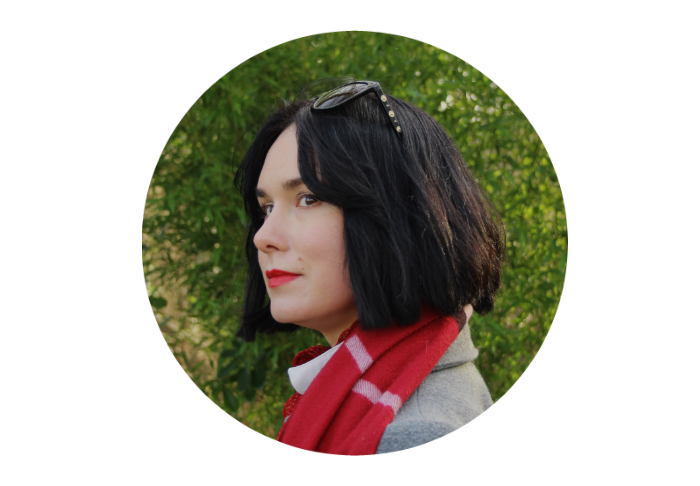
My name is Yulia, I have been living in Cambridge since April 2022 after I came from Ukraine with my cat Penny.
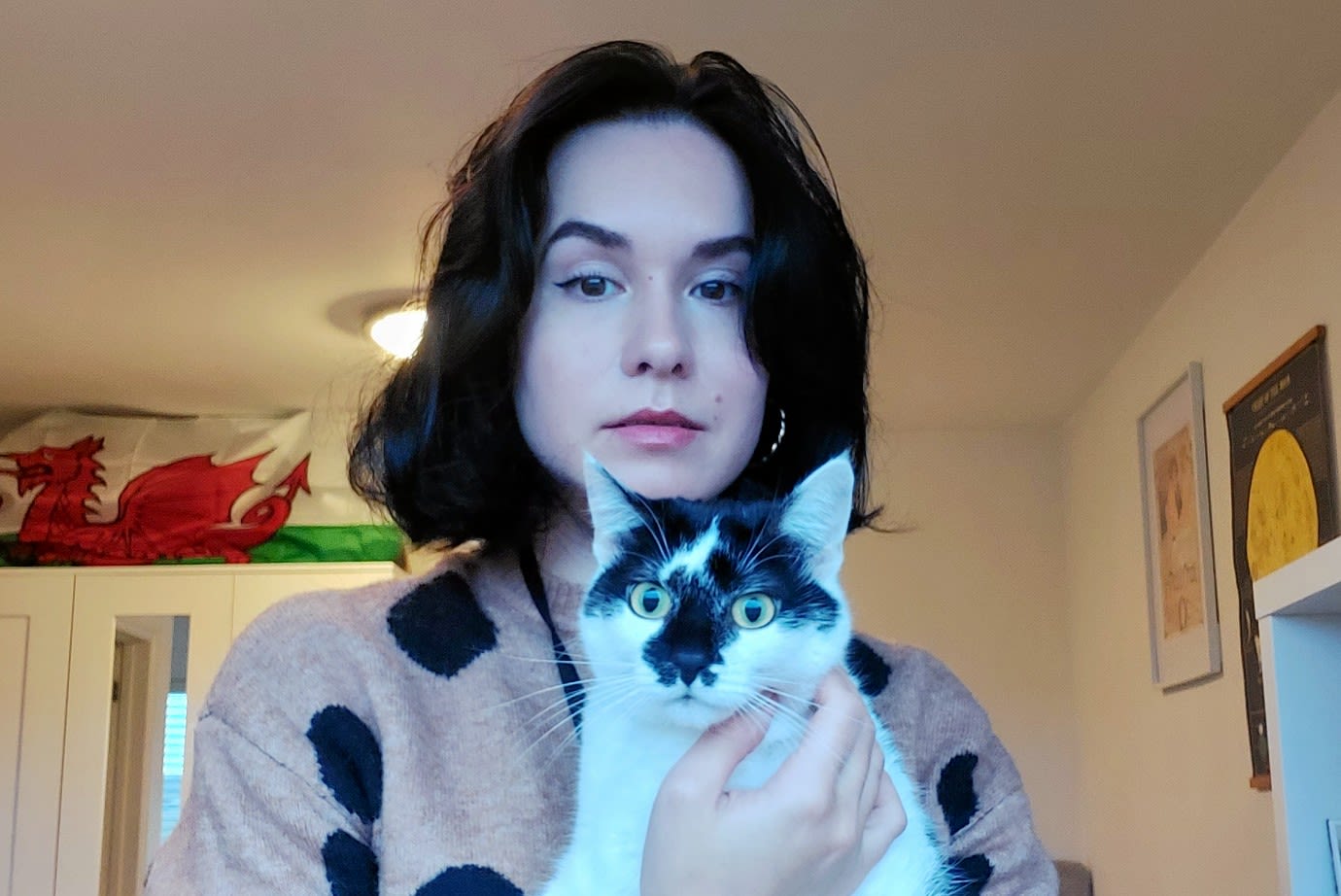
Since September 2022, I have been working at Pathology as an Administrative Assistant. My favourite things about my work are my friends, my plants, and the feeling that I am making my little contribution to something meaningful so our research groups can focus on understanding and potentially curing diseases.
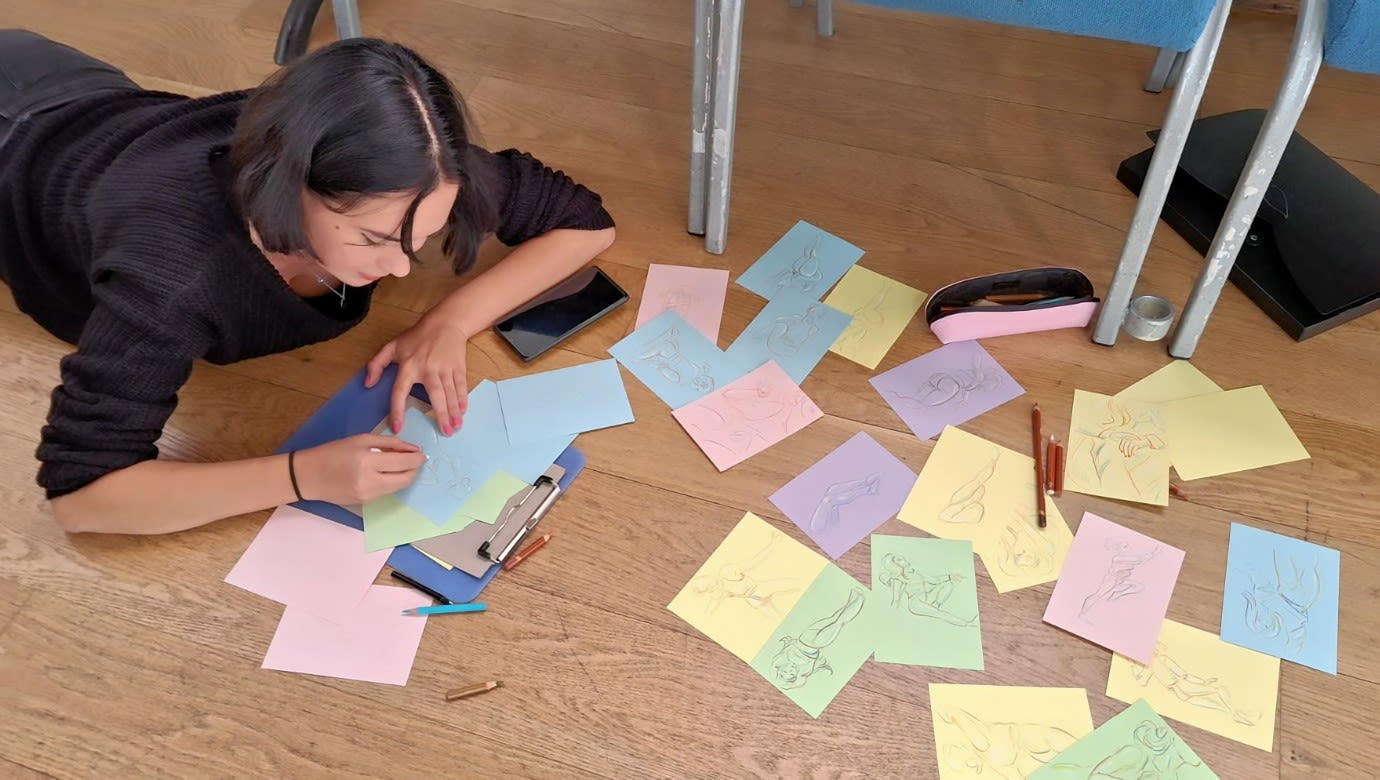
Before coming to Cambridge I was a full-time artist for 12 years, so I continue implementing my skills into my current work and am really enjoying the positive effect of a gentle routine on a creative mind.
Some of my recent hobbies also include doing yoga and learning Welsh.
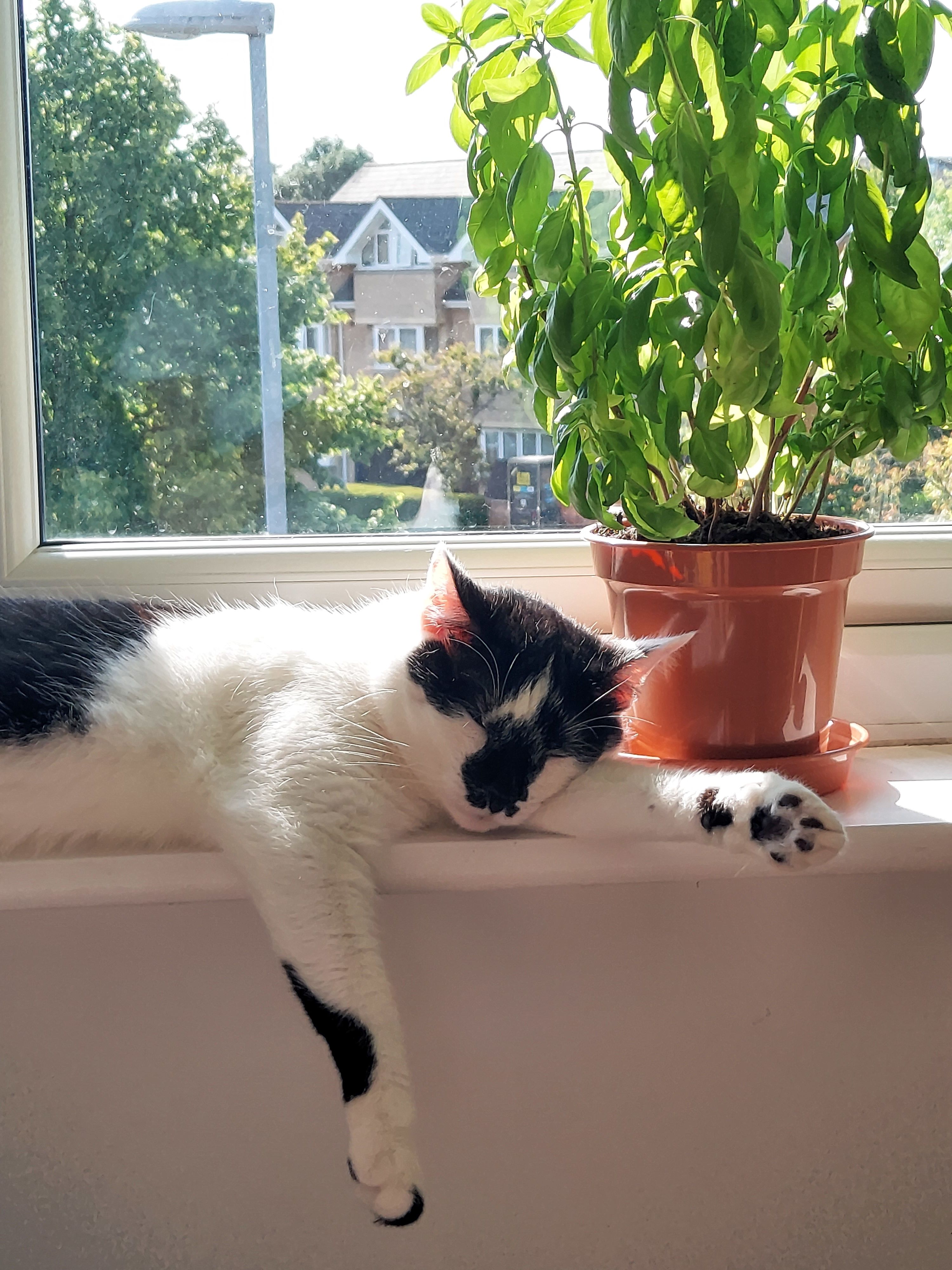
Jennie Ring
Deputy Laboratory Manager
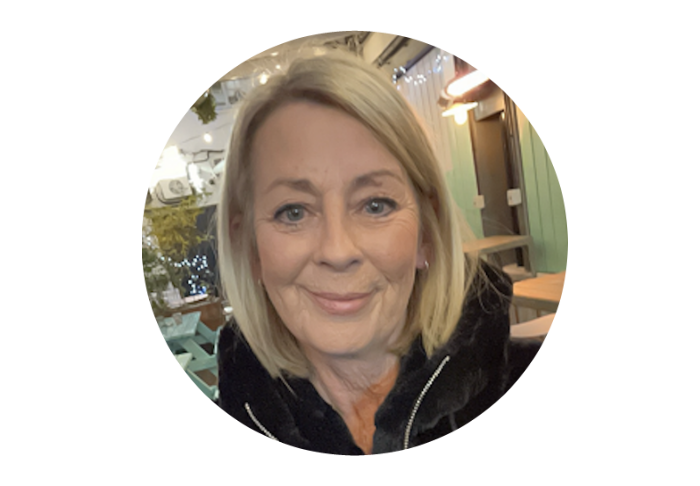
Hi, my name is Jennie and I moved from Ireland with my husband to Cambridge nearly 10 years ago.
I took a career break from my job at the National Blood Centre in St James Hospital in Dublin. It was supposed to be for a year, but I’m still here :).
I joined the Department of Pathology in August 2014 and have had various roles that I thoroughly enjoyed. I am now the Senior Deputy Lab Manager, and I love the variety of my work—no two days are the same! I can often be seen running around the Department as I need to be in two places at once!
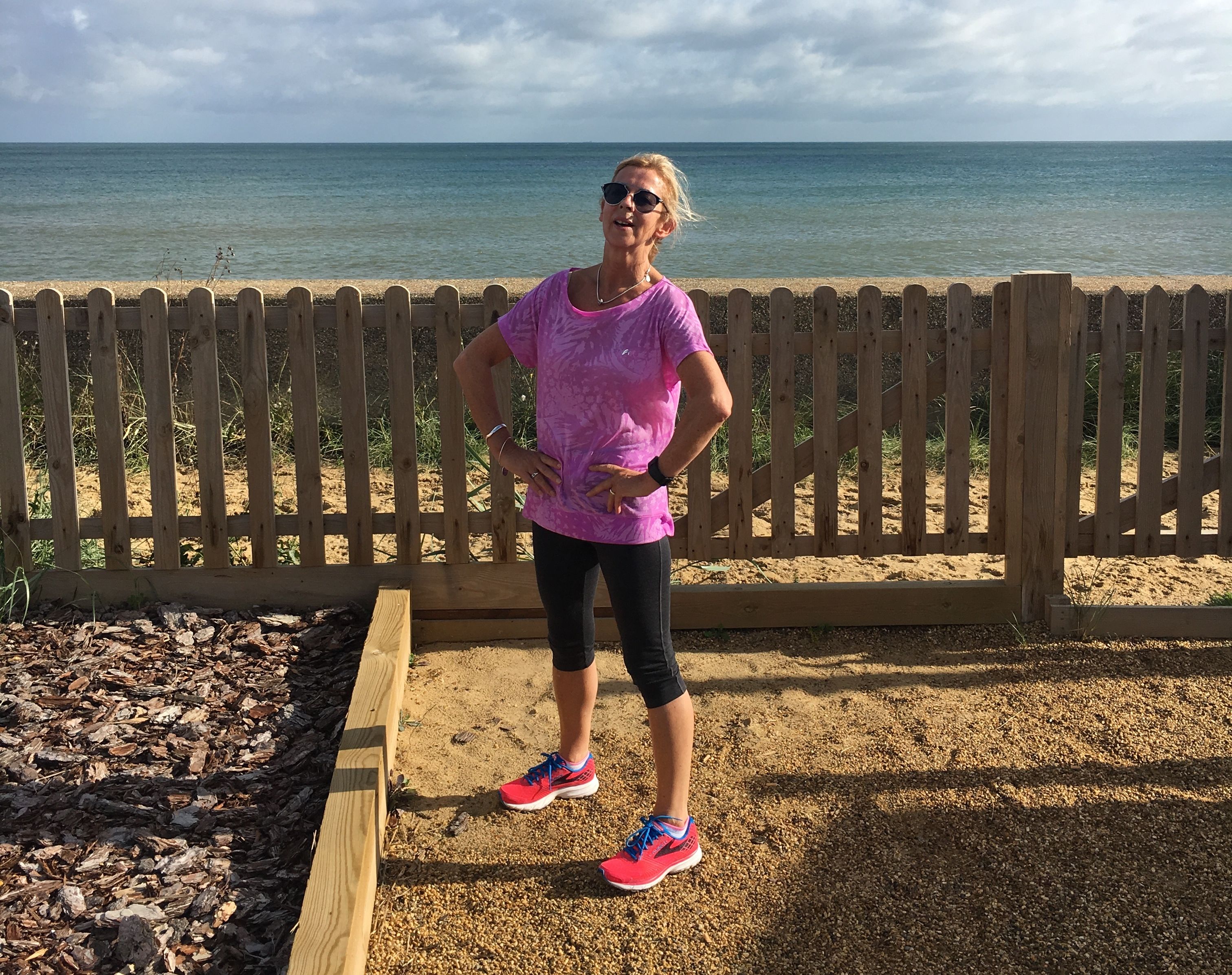
I am responsible for the maintenance and running of the labs to support the Senior Lab Manager. I also do inductions for new staff and safety training for lab facilities. I am still heavily involved in the classroom and help out during term time for the busy, practical classes. I do many other tasks, including ensuring everyone is fed and watered on Wednesday with the introduction of free coffee and pastries for “Wellness Wednesday.”☺ I am involved in the Outreach Program and love helping to organise the Cambridge Festival.
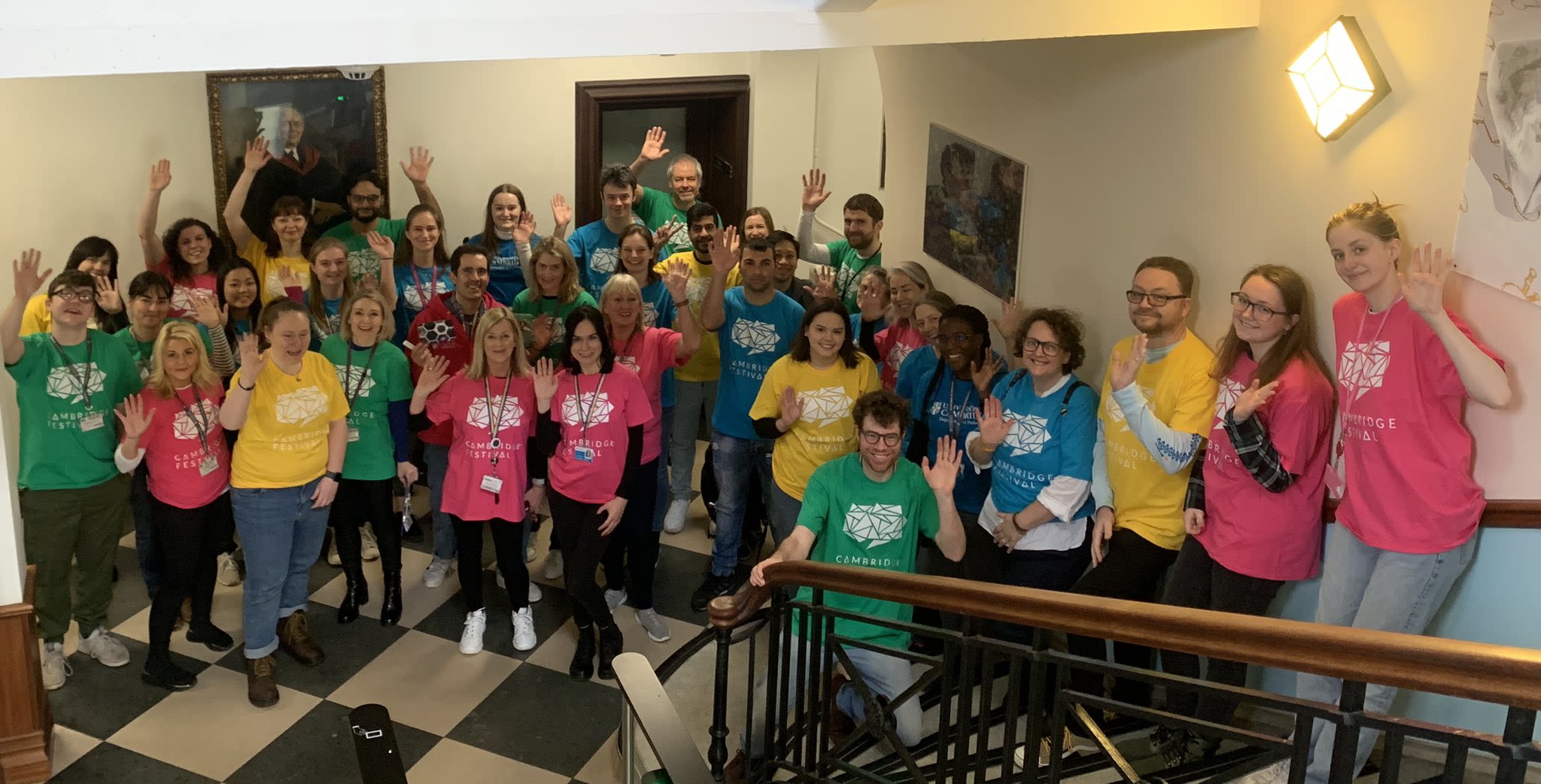
I am one of the Wellness Advocates which can often keep me busy. People like to chat with me in confidence about various issues as I have a calm understanding nature and love to help wherever I can.
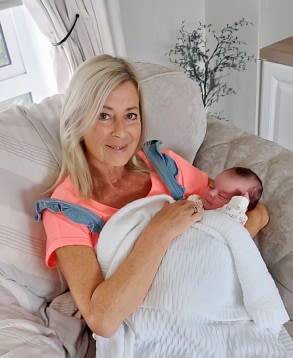
Since last year, we have had two new additions to the family. A little rescue dog called Allie and the most beautiful grandson, Jack (he is beautiful ask anyone ☺)

Amy Davies
MPhil Student
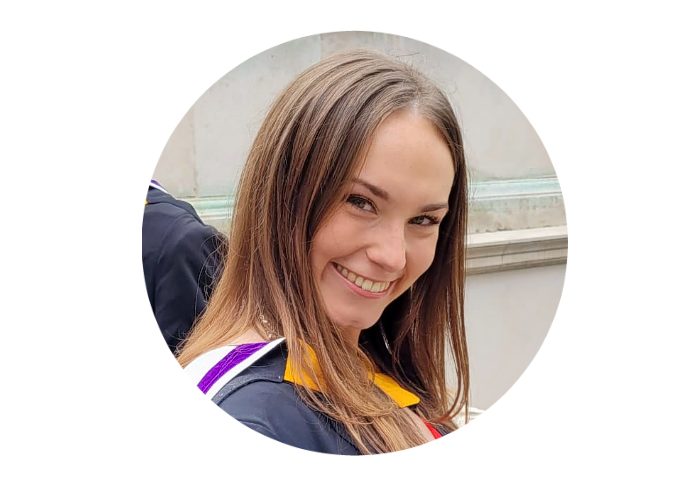
As an MPhil student focused on HPV pathology, I'm deeply committed to empowering women through my research.
My work focuses on unravelling the mechanisms behind the loss of late viral gene expression, a critical step in the progression to cervical cancer. I actively participate in the University Femtech and Reproductive Rights Society, advocating for female-focused research priorities. Engaging with leading specialists fuels my drive to reshape women's healthcare.
Fiona Craig
Departmental Administrator and General Manager
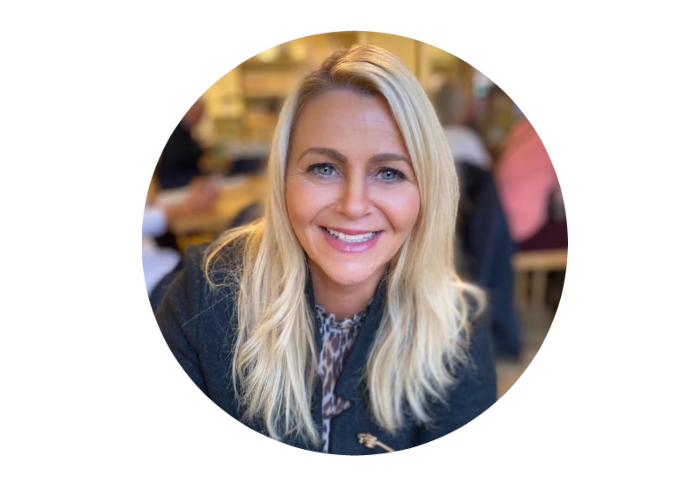
I spent most of my younger years living abroad, growing up in Africa, Asia, and many places in between!
Starting my early education in International Schools, I was also fortunate enough to spend time at College in America, so feel I have had exposure to a diversity of learning environments. This has given me a keen interest in travel, culture, and the world beyond, and I like to think it has enabled me to remain open and receptive to new ways of doing things. I love meeting diverse people and feeling connected to a broader body of colleagues.
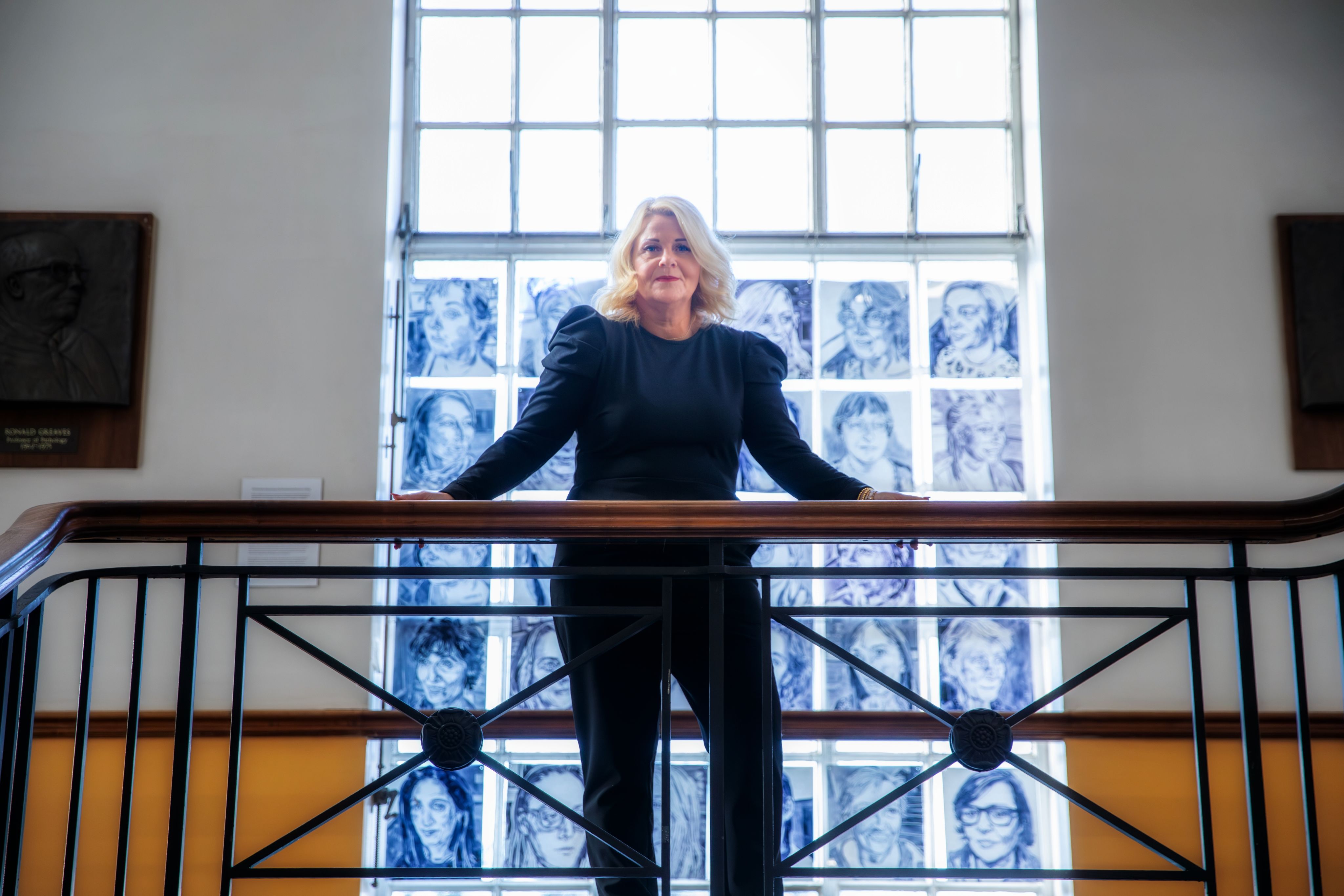
Over the past six years, I have worked in senior leadership roles across the University and have had the privilege of collaborating with colleagues across the collegiate university on a diversity of initiatives and activities.
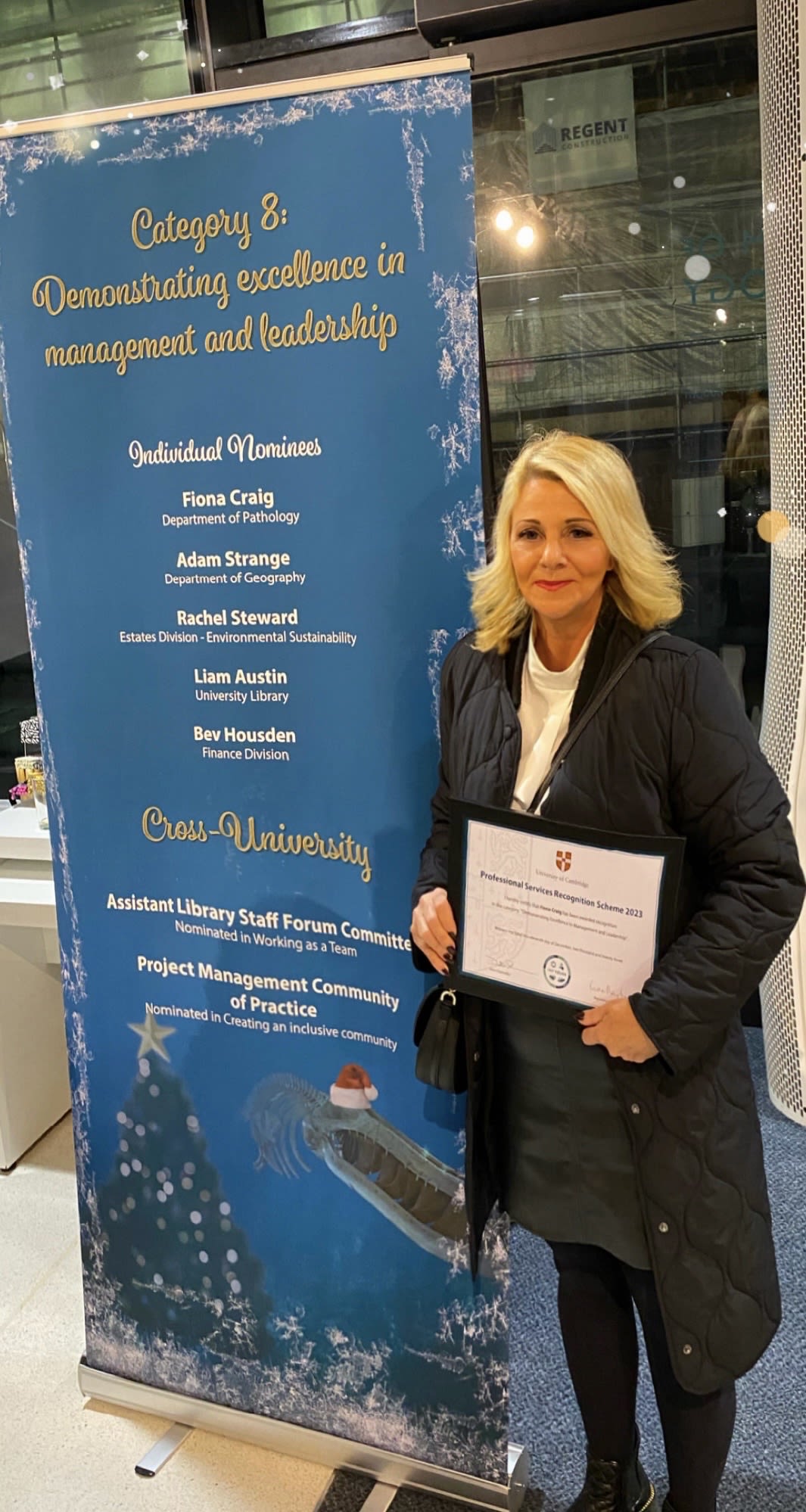
The role of the General Manager is like steering a large ship, navigating all colleagues through the sea of new policy, procedures, compliance and change and looking for the people in the process, creating lots of opportunities for development and growth. Some of these are thrust upon us, and some are things we can develop and control. I enjoy the multiple demands of this role. It encompasses everything from being mentor, counselor, facilitator, advisor, delegator, diplomat, mediator, problem solver and motivator. I am 100% relationship-oriented, wanting to engage, motivate, and encourage others through change and achieve goals. I am focused on creating an inspiring and collaborative work environment to accomplish the organizational vision best.
Jeanne Salje
University Assistant Professor
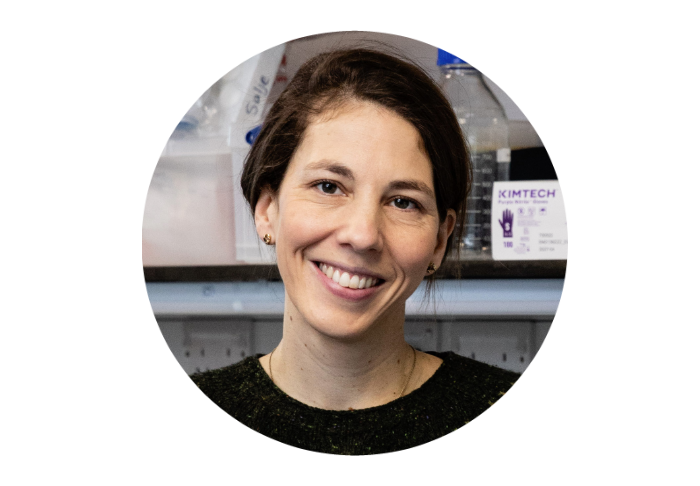
Dr. Salje leads a research team that studies the fundamental cell biology of obligate intracellular bacteria.
The research aims to understand how bacteria have evolved to survive in eukaryotic cells and how we can use this understanding to combat infectious diseases. This research focuses on rickettsial diseases in general and an organism called Orientia tsutsugamushi in particular. This causes the severe vector-borne human disease scrub typhus transmitted by the larval stage of Leptotrombidium mites. Dr. Salje’s research group is based partly in Cambridge, UK, and partly in Bangkok, Thailand, where scrub typhus disease is endemic.
Dr. Salje studied biochemistry at Oxford University and carried out a PhD in bacterial cell biology in Jan Löwe's lab at the MRC Laboratory of Molecular Biology in Cambridge, UK. She spent the subsequent 12 years living and researching in the USA and Thailand before relocating to Cambridge with her research group in 2022.
Louise Howard
Histology Technician
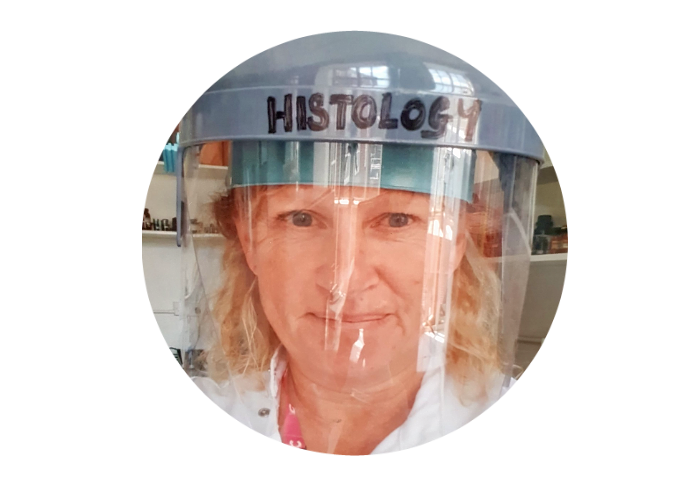
I was born above a family butcher's shop in Cambridgeshire and, at 17, joined the Department of Pathology as a trainee histologist on a YTS Scheme.
I went on to work at Papworth Hospital, where I spent 17 years within Professor Doug Winton’s group. Then, I joined the histology core at CRUK when it opened. Now, back to my roots, I am Chief Histologist in Pathology.
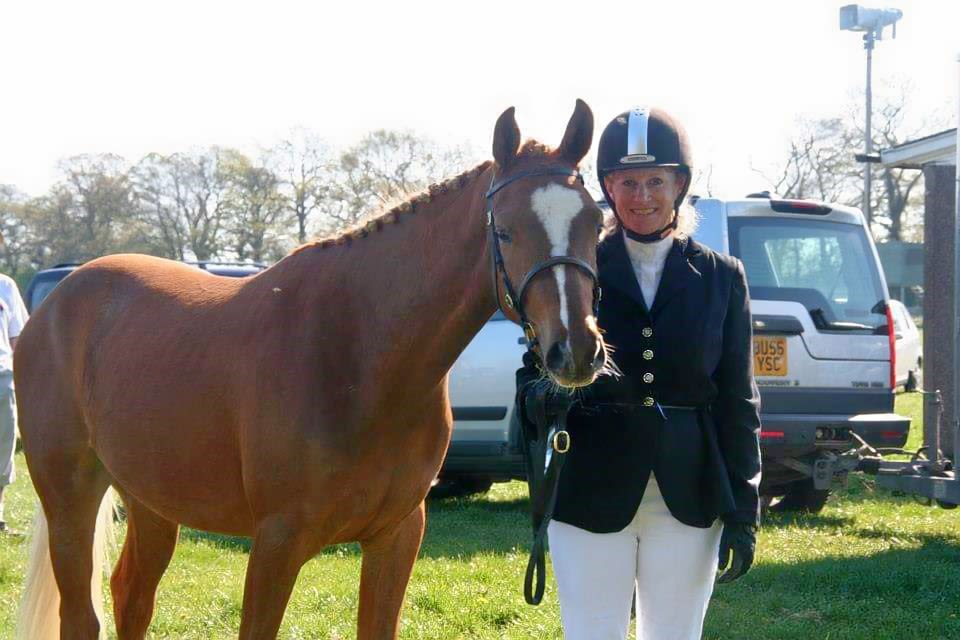
Other skills are horse ownership/riding, our beautiful Danish Knabstrupper looks like a giant Dalmatian. I am a keen gardener and love to make clothes and Millinery. Currently our home build is the focus of attention which will be very Eco friendly.
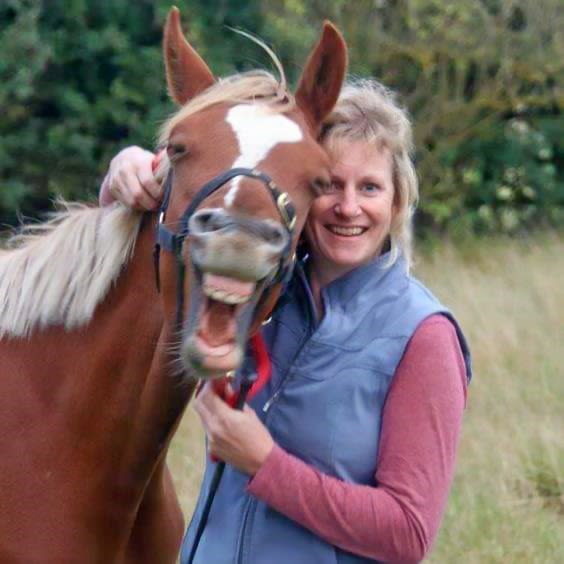
Catherine Merrick
University Associate Professor, Division of Microbiology and Parasitology
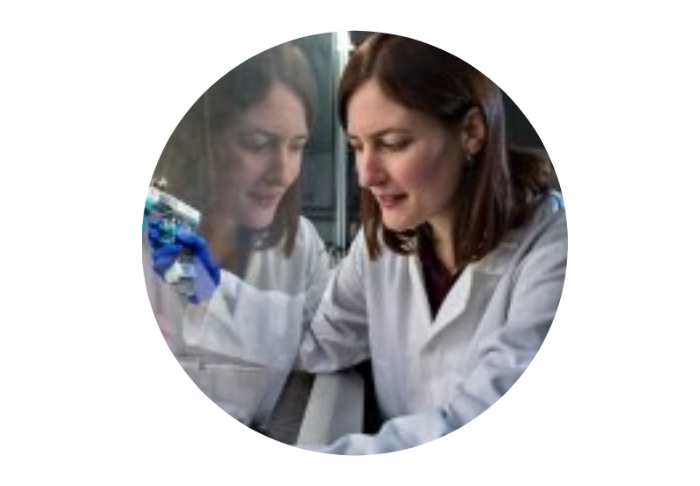
My research focuses on the human malaria parasite, improving our understanding of its basic biology and its impact on virulence. I use molecular genetics and cell biology to study this important human pathogen.
My group studies the human malaria parasite Plasmodium falciparum. Research interests are centred around DNA biology, particularly the molecular mechanisms underlying DNA replication and cell cycle control in Plasmodium, which replicates by an unusual method called schizogony. I am also interested in the roles that G-quadruplex DNA and RNA structures may play in the parasite - for example, in silencing and promoting the recombination of a family of key virulence genes called var genes, whose variant expression is under epigenetic control. We have discovered that G-quadruplexes and their helicases have more general roles in genome stability/evolution in the malaria parasite and influence transcript expression at the RNA level. I have a long-standing interest in epigenetics: my postdoctoral work focussed on a group of deacetylase enzymes called sirtuins, which regulate subtelomeric chromatin and virulence gene expression and are linked to severe malaria in human patients. We are now studying other epigenetic pathways in Plasmodium, including the novel phenomenon of histone lactylation.

Alongside our research, we are actively involved in science communication, including school visits and the annual Cambridge Festival. Our latest public engagement project can be found here (website) or as a podcast: 'We Shall Not Cease From Exploration - The Poetry of Research'.
Ingrida Olendraite
Research Associate
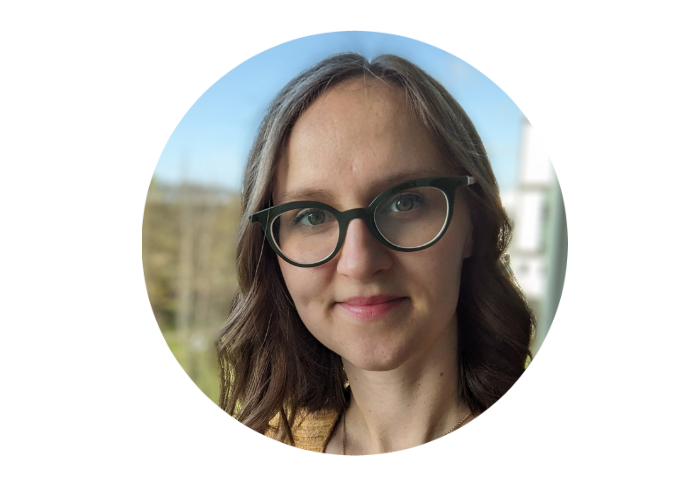
I am interested in discovering new viruses, their molecular biology, and their ecology.
My favourite protein is RNA-dependent RNA polymerase. I spend most of my time doing bioinformatic analysis on virus protein diversity and evolution.
Ellie Gilbert
Teaching Manager
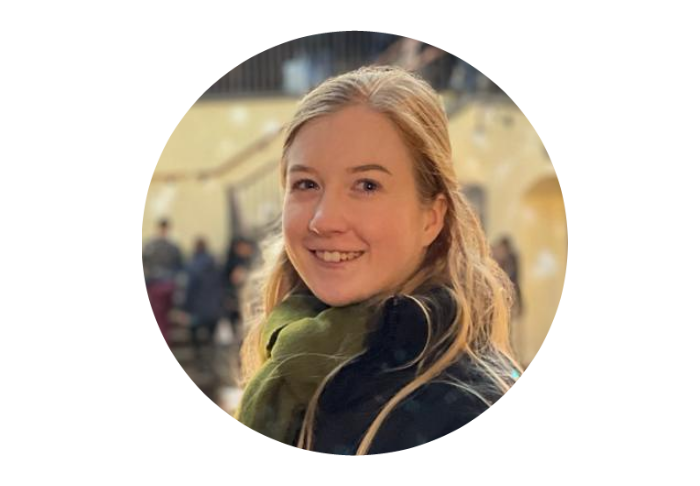
Hello – I’m Ellie! I’ve worked for the University since October 2019 and moved to Cambridgeshire when I was nine.
I joined Pathology in November 2023 and currently manage the Teaching Office, working alongside my wonderful colleagues, Lisa and Bea. This is the first department in which I’ve worked within SBS, and I particularly enjoy the collaborative nature of my work and the variety of areas in which I’m involved. At the moment, I’m learning how to use Microsoft’s PowerAutomate to see how we can use this to improve teaching processes for the next academic year and working steadily through a long to-do list of exam-related tasks.
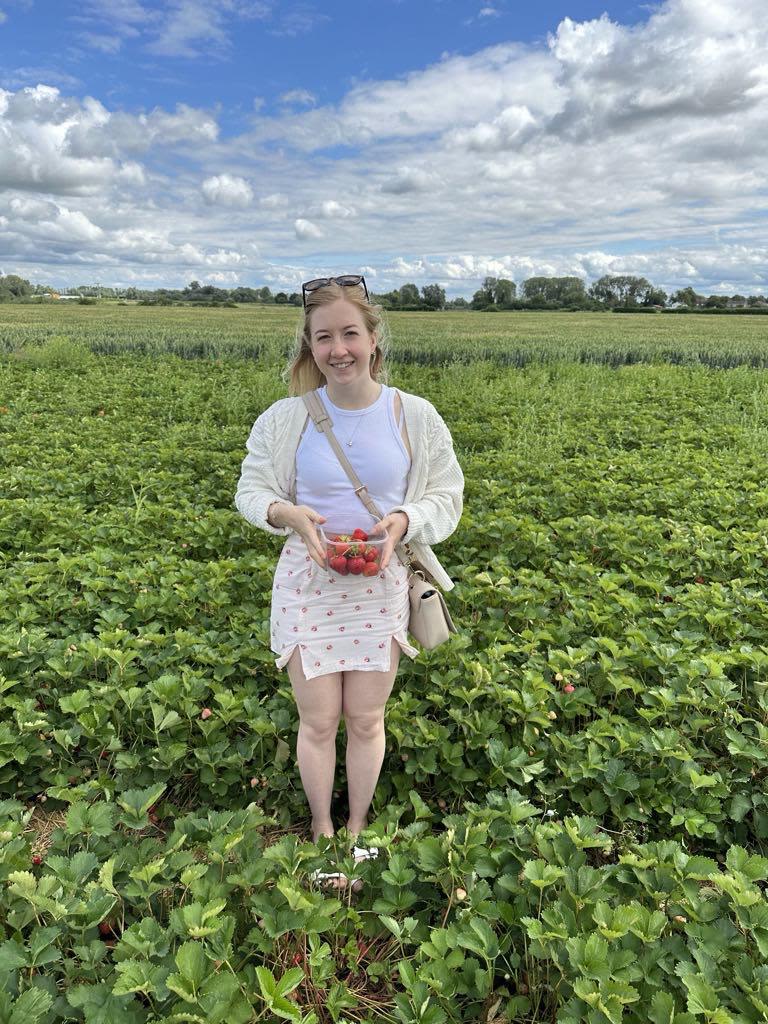
Outside of work, I have a lot of hobbies (too many to keep track of). I love reading about archaeology and anthropology, sewing many of my clothes, and having too many glossy books about eighteenth-century women’s fashion. I also row and love to experience new things and places; I try to travel to a new country every few months. Recently I have visited Austria, the US, and Lisbon.
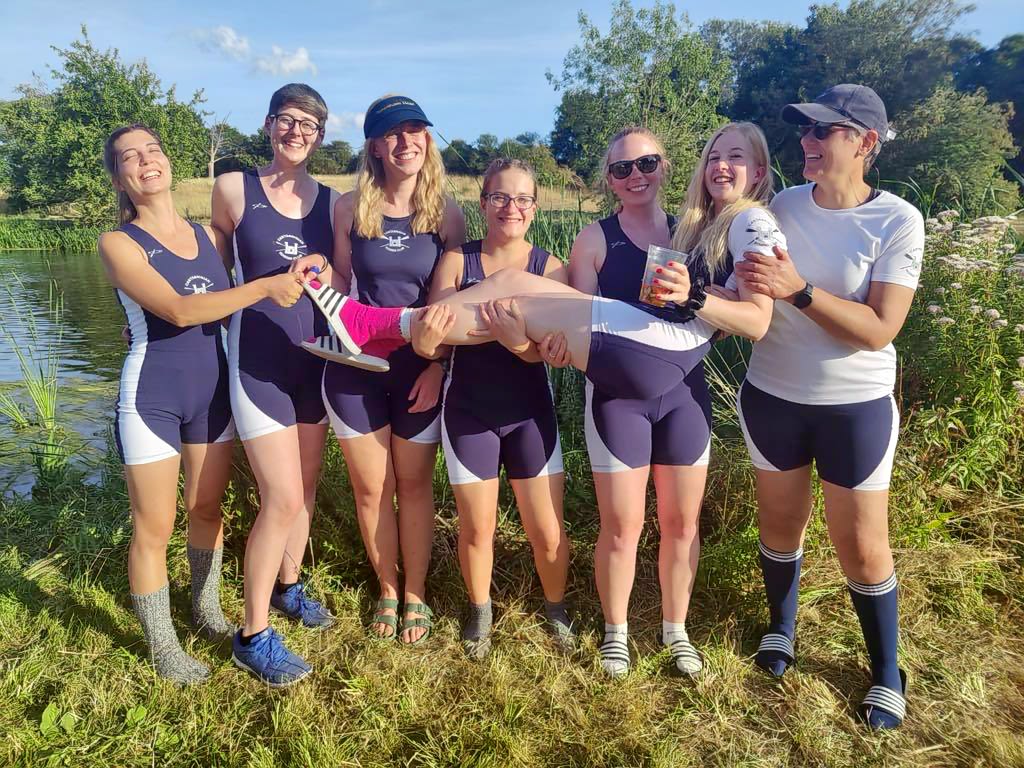
Please do pop in the Teaching Office to say hi whenever you have a free moment – I love chatting and meeting new people! 😊
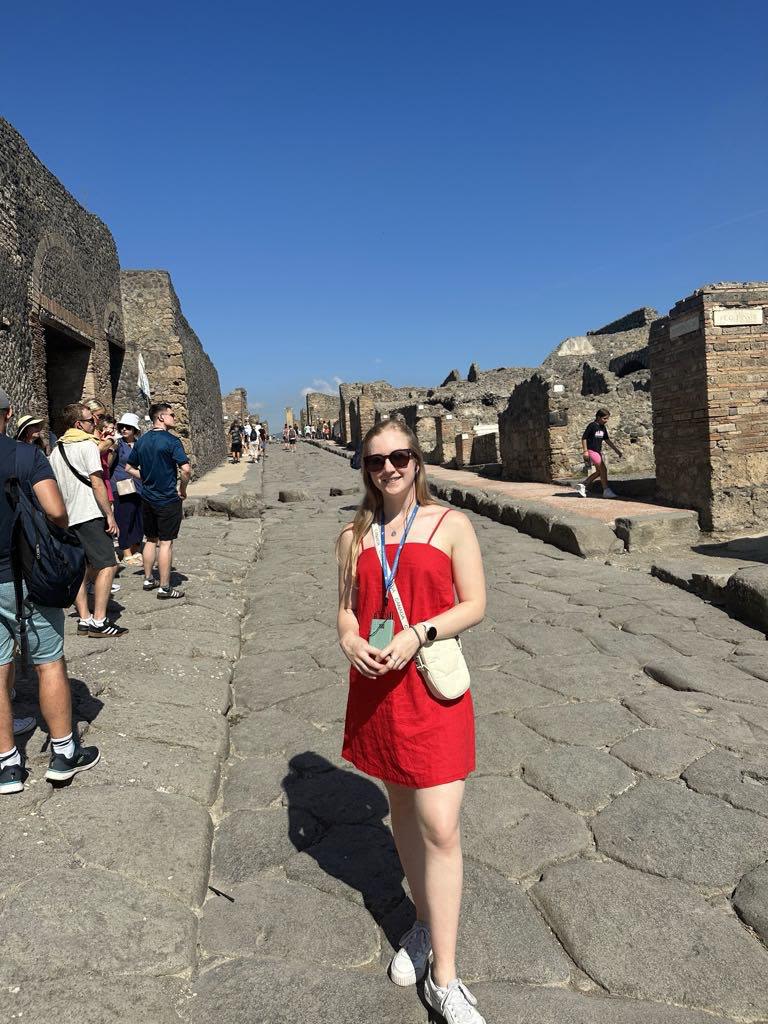
Liv Harriman
Departmental Communications Manager
Liv enjoys creating and curating bespoke content and drinking coffee.
She oversees all internal and external communications, ensuring the department's message is consistent and engaging. She is an experienced communications professional with over ten years of experience in communications and public relations, specialising in medical research, patient care and higher education.
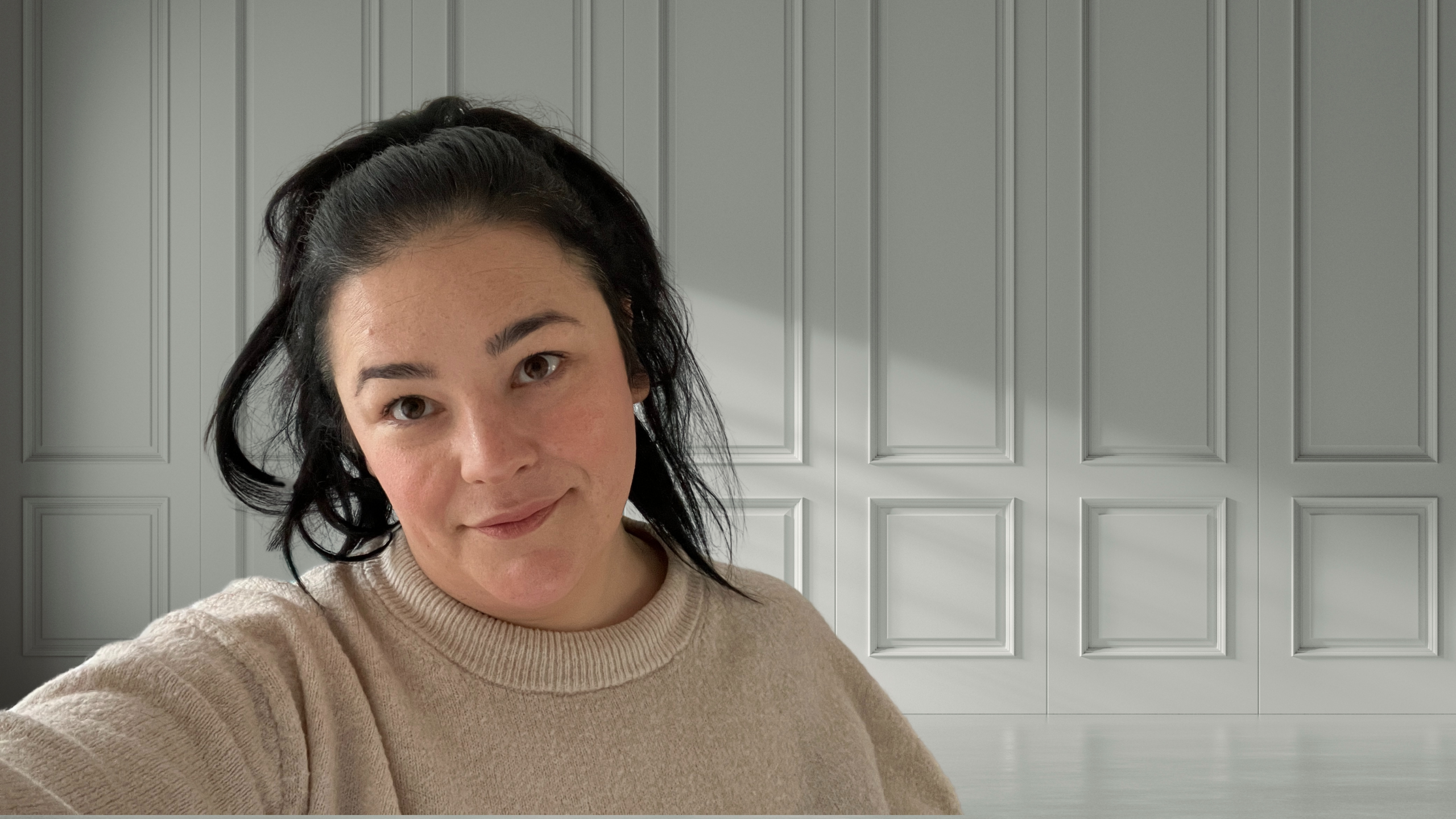
Her work aims to engage the public, schools and alumni. She is also a well-being and sustainability advocate.
After studying Art History at St Andrews University, Liv went on to work in art galleries and museums. After working on a Science in Art project, she never looked back. However, she can still be found visiting art exhibitions and museums in her free time.
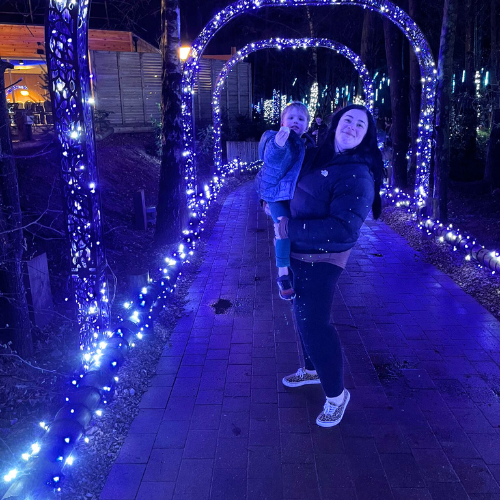
When not at work, Liv is a solo parent and carer for her two sons and many houseplants.
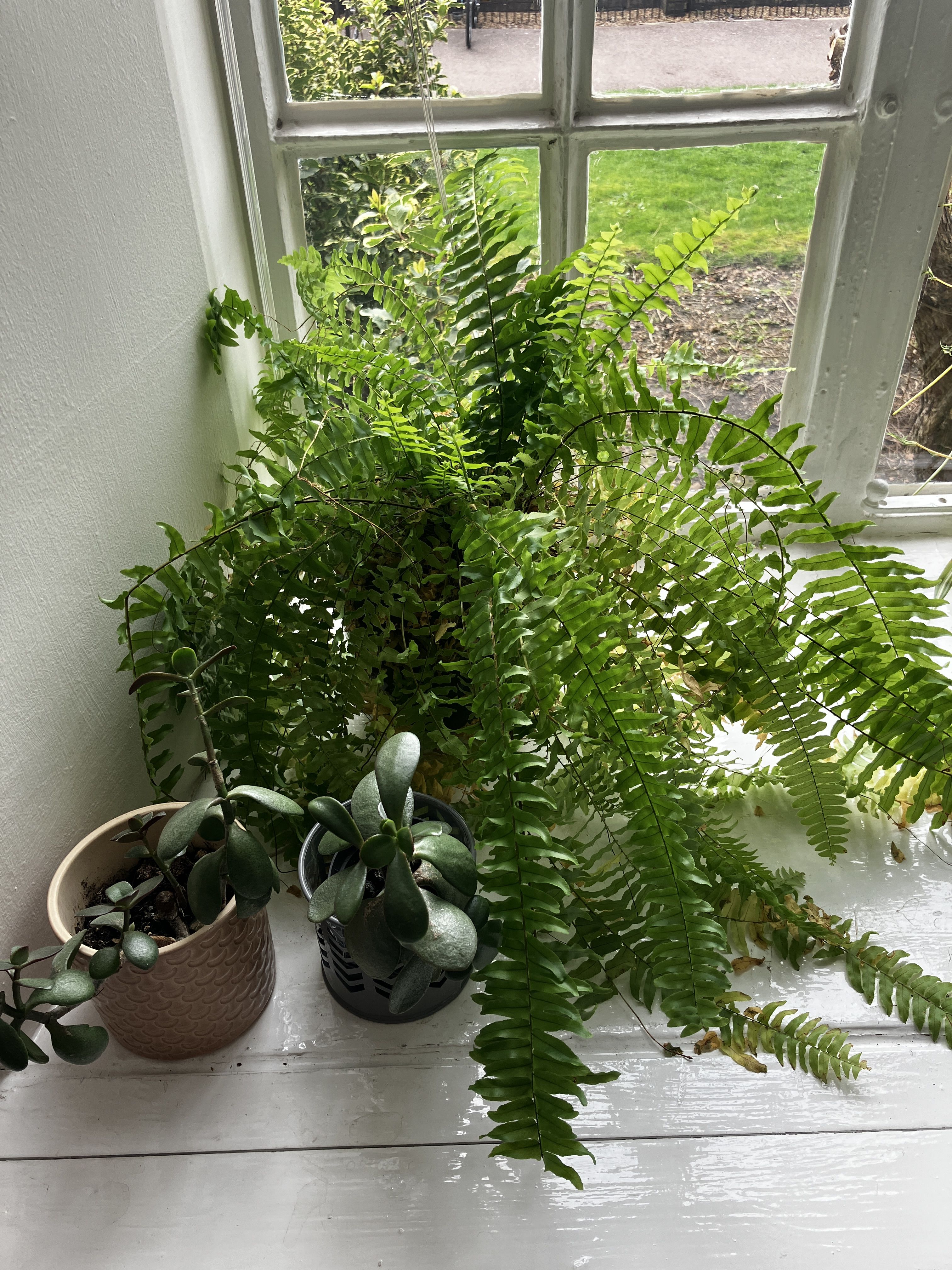
Caroline Walker
PhD Student
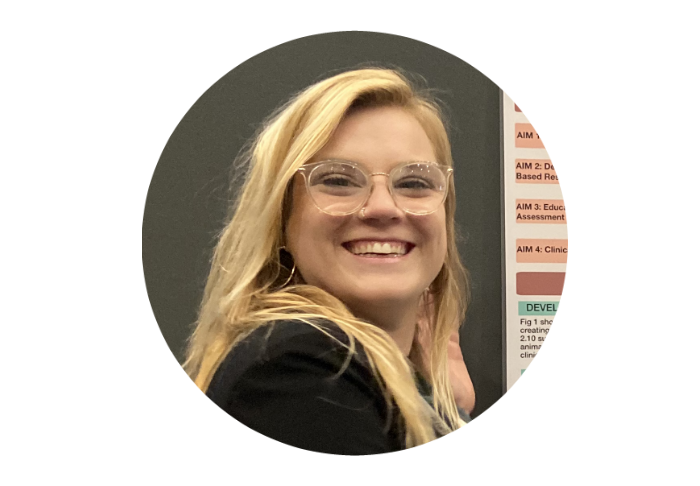
Caroline Walker is an interdisciplinary PhD student in the HPV and Cervical Cancer Lab.
Her doctoral research focuses on developing animation tools for education to help improve understanding surrounding HPV disease biology, immune control, and diagnostic techniques among healthcare professional groups. She translates intricate scientific data into clear and compelling visualizations, studying how effective these are within the scientific field of higher education. This research stems from collaborations with molecular biologists, epidemiologists, and clinicians to create a series of 2D animations to investigate the best visualization methods for clinical education.
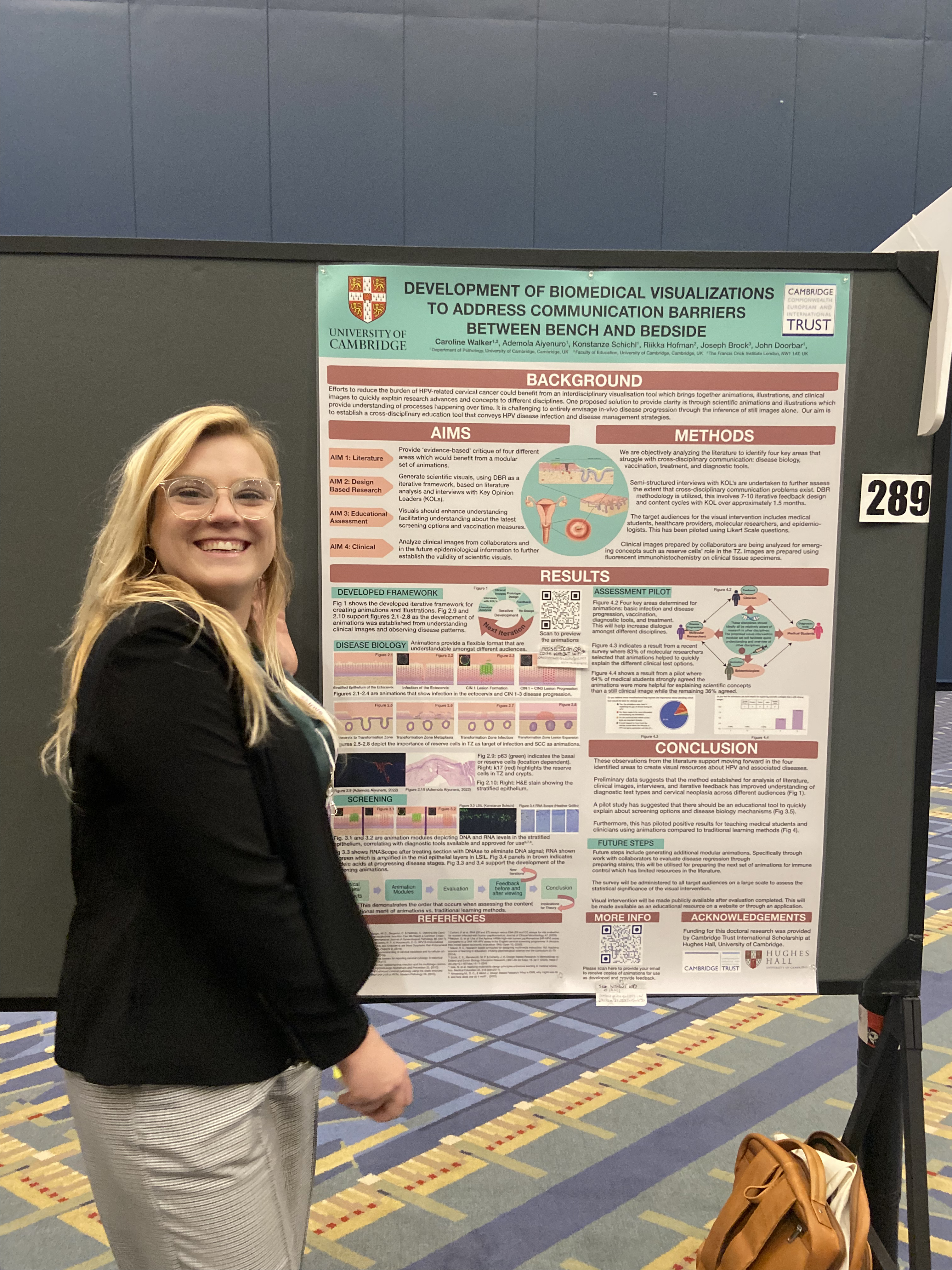
Caroline is originally from Tennessee and moved to Scotland in 2019 to study for a master’s degree in medical visualization. In her spare time, she enjoys travelling, reading, hiking, painting, concerts, and anything related to animals. She is also part of the Femtech Society committee at Cambridge, which organises events to promote knowledge sharing and tackle challenges in women’s health and technology.
Haddijatou Mbye
Research Associate
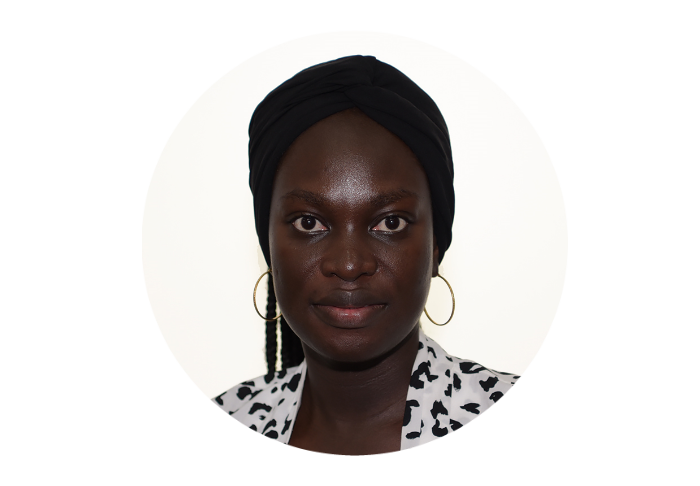
Having grown up in The Gambia, a small country in sub-Saharan Africa, Haddijatou experienced first-hand the devastating burden of malaria in her community.
Witnessing the toll of malaria in her homeland from a young age lit a sense of purpose within Haddijatou - she hoped to use science someday to ease the suffering caused by this infection. This early exposure fuelled her interest in parasitology and inspired her academic journey, eventually leading her to obtain a PhD focused on antimalarial drug resistance. Haddijatou feels privileged to leverage her background and experience with this disease to conduct high-impact malaria research at the Merrick lab.
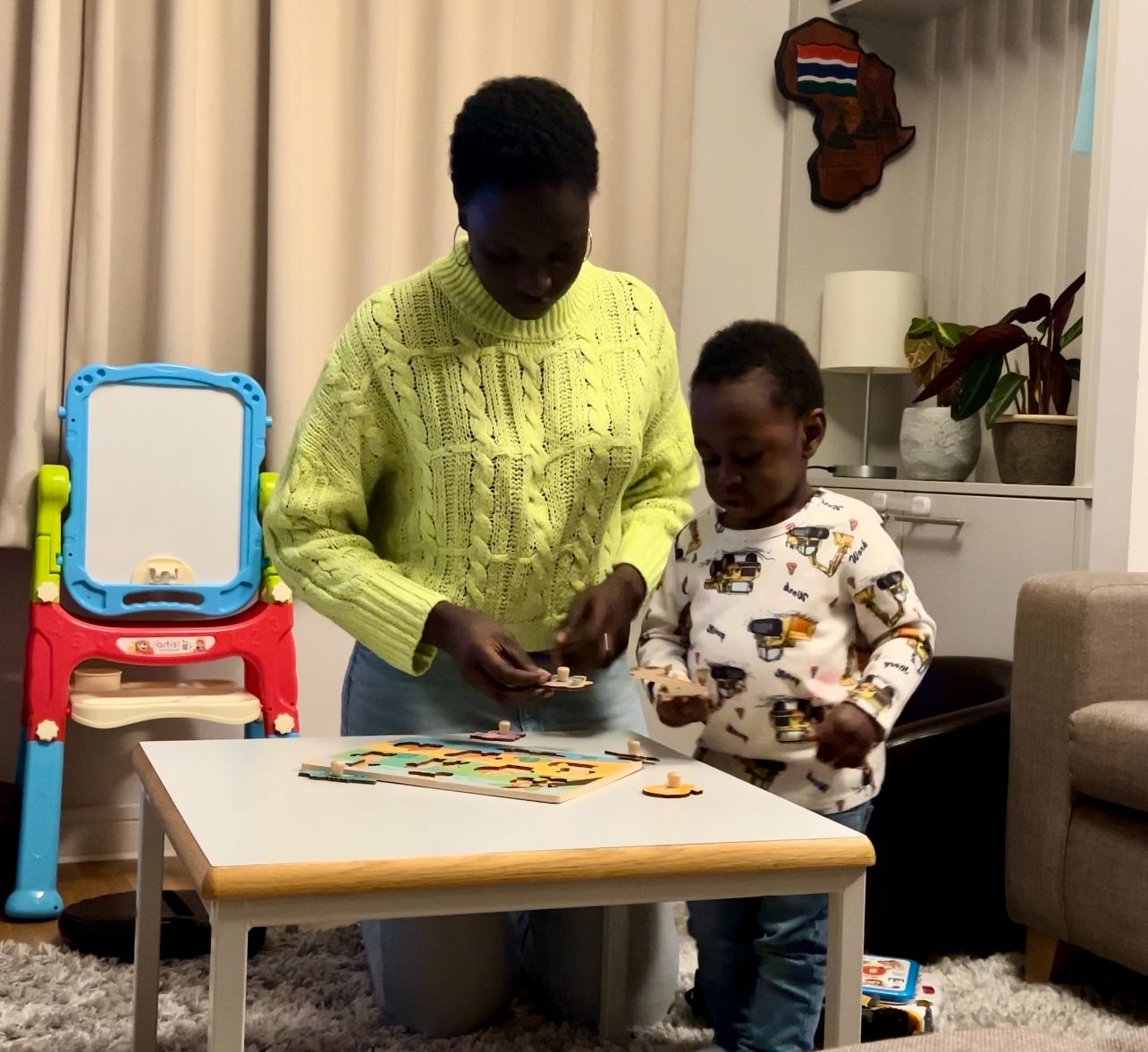
Beyond the lab, Haddijatou is a devoted single mother to her son, Mo. She considers motherhood as her most important and rewarding role. Haddijatou works hard to balance her lab work and spending quality time with her beloved Mo. Balancing the demands of motherhood with a thriving scientific career, she embodies resilience and determination. Haddijatou feels extremely grateful to have the privilege of both raising her son and contributing to meaningful research. Haddijatou's story is one of triumph over adversity, illustrating the power of dedication and hard work. Her journey is a beacon of inspiration for women in STEM and single mothers worldwide, proving that with perseverance, anything is possible.
Paula Perez Gonzalez
PhD Student
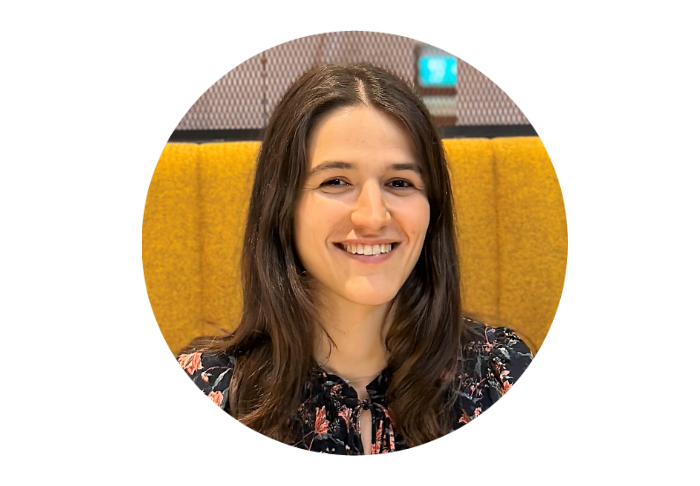
Paula moved to the UK in 2017 to study her BSc (Hons) in Biotechnology at the University of Surrey.
As part of this, she did a research year in Dr Rifkind's Lab at Weil Cornell Medicine, where she studied the role of the environmental toxin TCDD in human metabolism. In 2021, she joined AstraZeneca as part of the R&D Graduate Programme. There, she was involved in various projects ranging from engineering novel kill switches to studying T-cell engager antibody therapies to doing a bioinformatics project looking at the role of hypoxia in immunotherapy resistance. Her passion has always been the design and engineering of novel therapies. Hence, she is now pursuing a PhD in the engineering of novel oncolytic biotherapeutic agents to treat cancer at Brian Ferguson’s Lab.
In her free time, she enjoys to spend her time outdoors be that running, cycling, hiking or swimming.
This project is a labour of love by Yulia Lapko and Liv Harriman.
We were inspired by our formidable female colleagues, the inspiring artwork 24 Portraits: Recovering and Re-imagining Women's Labour in the Department of Pathology by Emma Copley of women in Pathology that hangs in our corridors amongst the many male brass plaques, and the UN's Unpacking the Care Society: Caring for people and the planet.
